



|

|

|
|
2008/08, August 2008 Photofictional, A Daily Blog Posting By Bryan Costales
|
|
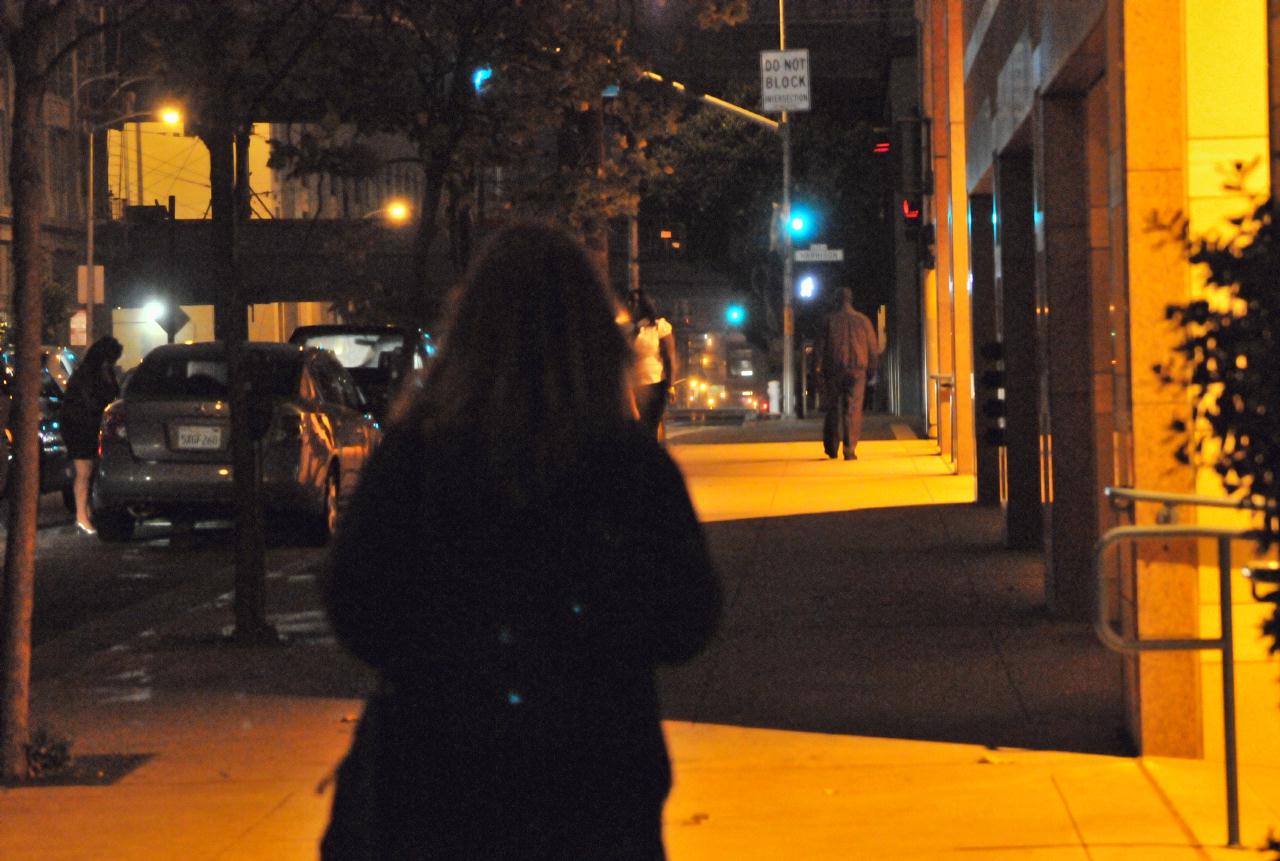 | |
|
Copyright 2008 Bryan Costales They called her Madding, because she always avoided crowds. She wandered the nights always overdressed with layers of clothes to remain warm. She always seemed to search, to seek, but never to find. Dan Samuels hung outside the Chester Bar with his friends, smoking cigarettes and laughing. One of them noticed Madding approach. Dan found himself saying, "I'll ask her." Dan felt friendly but drunk hands push him out into the sidewalk's center. He faced Madding and squared his shoulders. Madding moved sideways toward the street to pass him, but he shifted ahead of her making her stop. "Why?" Dan asked. Madding raised her head and looked at him. Her eyes were hidden by sunglasses, her face was dirty, her lips were pale and cracked. She appeared as if she should stink, but she smelled okay to Dan. "Why what?" Madding asked. Her voice was husky but her words were well spoken. "Well why do you wander? What are you looking for? Everybody wants to know." Dan gestured toward his waiting friends but was surprised to find they had returned into the bar. "I seek a kindness." Dan was distracted by the disappearance of his friends. "What?" he asked. "What about a kindness?" The Madding woman appeared to sigh. "I seek a kindness," she said again. "What kind of kindness? The woman appeared to be staring past his ear. She remained silent and didn't move. Dan looked around. They were alone on the sidewalk. The only kindness that popped into Dan's mind was a hug. He shrugged and lifted his arms awkwardly. He gave her a weak hug. Dan felt as if he was hugging a sack of bones. Under his arms she felt remarkably fragile. He released her and smiled a relieved smile. The woman Madding looked directly at him again. "Thank you for your kindness," she said. "I have taken your addiction." Then she lowered her gaze and shuffled past him and continued her way along the sidewalk. "What addiction?" he called after her. But she just kept walking, kept shuffling away. Dan returned to the bar and bumped into his friends just leaving again for another smoke. "What did she say?" they asked. "A kindness," Dan said. One mumbled, "Is that all?" Another shouted somewhat too boisterously, "What does that mean." They all lit up except for Dan. He didn't feel like a smoke. He snapped his fingers and said, "That's it. That's what she meant." Dan never saw Madding again. None of his friends did either. Some photos of her appeared on various blogs, but that was much later, years later, and on the other coast. Dan never smoked again. 3rd Street near Harrison Street • Photo Posted Thursday 21 August 2008 
 #BP20080821.jpg Add a comment or report a mistake
|
|
|
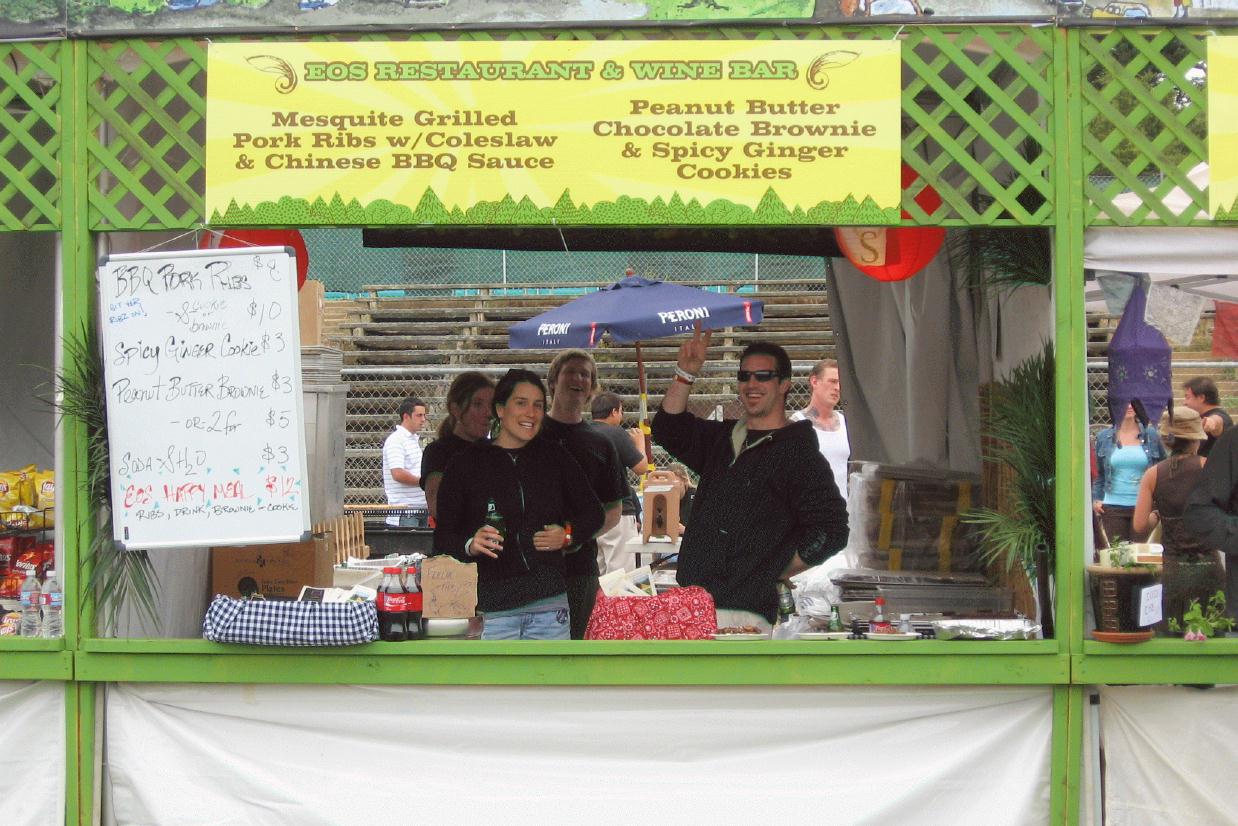 | |
|
Copyright 2008 Bryan Costales Robin Watts was one month into twenty-one and could drink, although her mother had said "No." But this was a concert, after all, and her mother wasn't along. Robin drank one glass of red wine and considered a second glass. She vaguely remembered that one kind of red wine was supposed to be good for you. But she couldn't remember which and, besides, all red wines tasted pretty much the same to her. Robin carried her empty wine glass to a line of three clearly labeled trash cans. One said, "Land Fill," the next said, "Recycle," and the last said, "Compost." She looked at the glass in her hand. It appeared to be made of plastic. She remembered from her only two years of high school that plastic was recyclable. But then Robin remembered once when her mother had said, "Plastic can only be recycled if it has not been contaminated by food." Robin noticed the stain of red wine in the bottom. "Food," she said aloud. But then she remembered Wednesday's conversation with mom. "You can't just drink wine for dinner," her mom told her. Robin didn't like the way her mom always criticized her. "Wine doesn't have any calories," Robin said. "I don't want to get fat." Her mom, she remembered, laughed a mean laugh. "You can't just have wine for dinner. Wine isn't food." Robin stood by the trash cans and said, "That's it. Wine's not food." Robin moved her arm to throw the glass into the recycling, but was distracted by two people behind a nearby counter. She looked and they waved and yelled at her. Robin couldn't hear them because of the music. "Why don't you sell something," she yelled at them. But that just seemed to make them wave more vigorously. Robin carried her cup over to them. "What is it?" she asked, a bit crossly. "You can't recycle that cup," the woman blurted. "But wine's not food," Robin told her. The man laughed. It was a mean laugh like her mother's laugh. "That's not the point," he said and smiled. "These cups are compostable." "What do you mean?" Robin didn't trust him. The woman pointed at the cup. "You see that green circle?" Robin looked and saw it. "That means the cup is compostable." "Not recyclable?" Robin asked, genuinely puzzled. The woman smiled. "If it was recyclable it would have a triangle." "Ah," Robin said. It suddenly made sense to her. With a mumbled, "Thanks," she carried her cup over to the three trash cans. She oriented herself to be sure the people behind the counter could see her. With an exaggerated sweep of her arm she tossed the cup into the compost container. The two behind the counter clapped their hands. They applauded her. Robin smiled. She liked that. Her mother never applauded her. Robin wandered back toward the music stage. But now she was wondering. What made one kind of plastic compostable and another recyclable? And that, oddly enough, was not her only thought. Beginning that afternoon, Robin began to think lots of thoughts. That afternoon's applause had nurtured Robin, had made her grow. That afternoon, it turned out, was the first day of Robin's adult life. Outside Lands Music Festival • Photo Posted Tuesday 26 August 2008 
 #BP20080826.jpg Add a comment or report a mistake
|
|
|
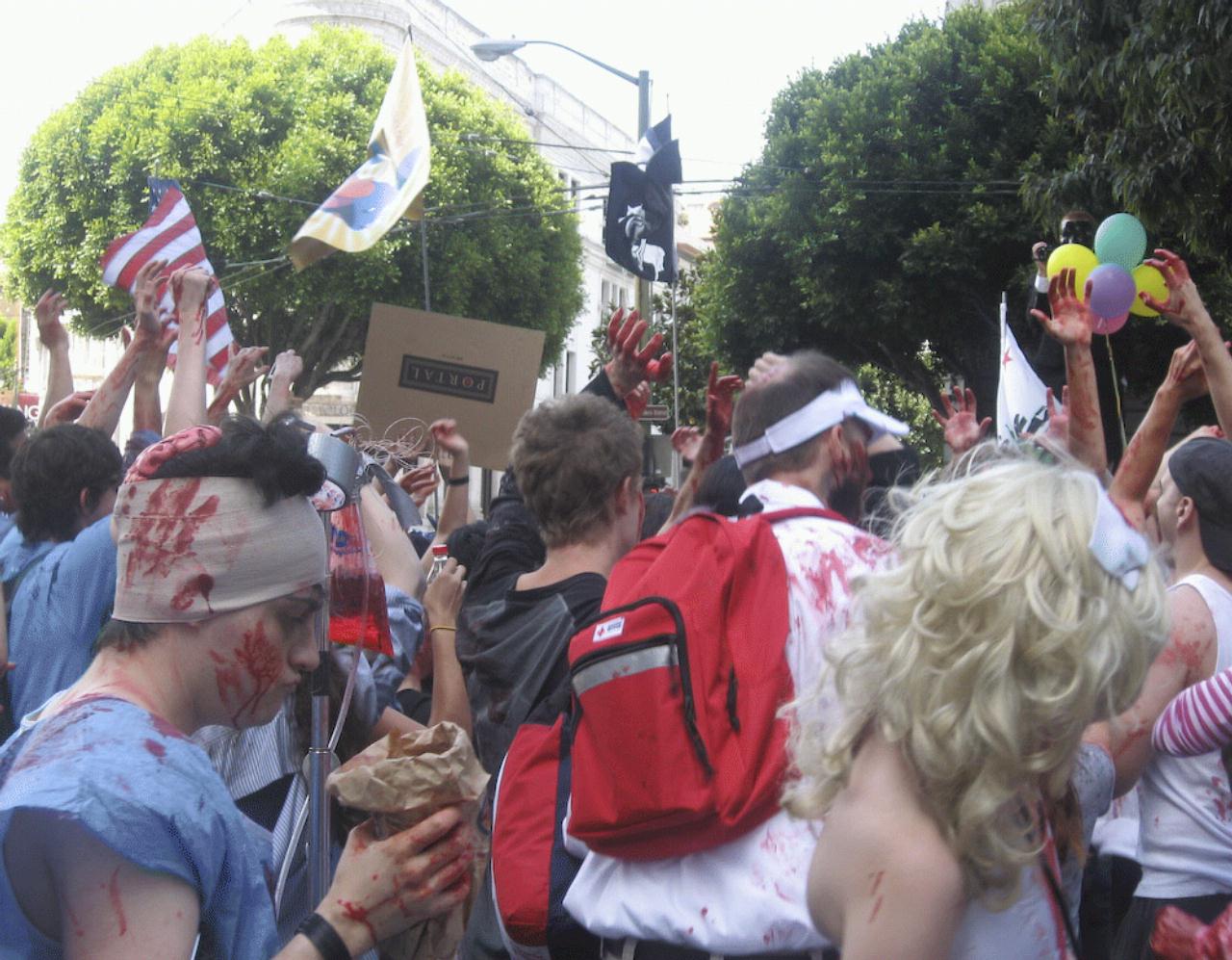 | |
|
Copyright 2008 Bryan Costales It began as a protest against a local church. Then an unruly mob of pretend zombies arrived and it transformed into a party. A truck with huge loudspeakers parked nearby and booming music lead to frantic dancing. Between five and six that afternoon business let out. Office buildings drained and the party grew to occupy many blocks. Molly Bishop watched the dancing with envy. She rocked back and forth in time to the music. A friend at work had said, "There's a party in the street. Let's go." But her friend had vanished into the moving mass leaving Molly standing by herself near a newspaper rack. Ted Tearwater was getting tired and much too sweaty. He stopped dancing and made his way free of the forest of bouncing, swaying bodies. Off near the edge, across the street by the Chinese laundry, he spotted a smiling girl standing by a newspaper rack. She swayed to the music. She was cute. The police arrived in force to break up the party. Dozens of classic black and white cars arrived with lights flashing. The effect to Molly was as if the street had suddenly filled with disco lights. Beyond the cars, across the street, she spotted a boy. He was casually dressed but cute and appealed to her. She lifted her hand to wave but a policeman blocked her view and said, "Move along now lady." Ted watched the zombie mob move as one along the sidewalk parallel to the police. He realized the mob must be one of those art events that happens every so often in the city. Ted decided to follow the them. As he moved to walk with them downtown he looked for the girl. He thought he saw her walking away but couldn't be sure. Molly lived in the Richmond District. Normally she would walk downtown then take the Geary bus home. Molly's friend from work found her walking that way. "Cool dance," she told Molly. But Molly was in a hurry so said, "Yeah. Gotta get home. Plants to water." The zombie mob flowed across the street toward Union Square. Ted followed. He notice many of those in the mob had taped X's on their shirts. He asked a guy, "Why the X?". The guy pointed at a group of zombies surrounding a woman. She was clean and had a taped X on her shirt. They forced her to the ground and smeared her with blood. Later she got up smiling, and acted as if she herself had become a zombie. Molly waited for the light to change. While standing there she noticed dozens of folks in bloody costumes dash across diagonally against traffic and surround a tour bus. Molly felt as if she were watching a movie. The people on the tour bus photographed the pretend zombies surrounding them. Molly noticed that same boy from earlier at the dancing. He was walking with one of the zombies. Ted felt safe among so many crossing illegally and snarling traffic. He thanked the man so helpful but silent and stood on a traffic island to watch. "Hello," said a girl's voice close by. He turned to look and found the cute girl standing next to him. "Hi," Ted said and stuck out his hand to shake. "I'm Ted." "Molly," Molly said. She shook his hand. She didn't let go right away. "Pleased to meet you." "Wear this," someone said and bumped Molly from behind. She looked over her shoulder but didn't see anything. She asked Ted, "Did somebody put something on me?" Ted turned her and looked. Someone had stuck a tape X to her back. He reached to remove it but was not fast enough. The mob had noticed the X too. The fake zombie mob attacked. That evening, Molly felt violated. She sat on her sofa and wept. She had managed to wash the fake blood off her arms, face and clothing, but still felt thoroughly mortified. Then Ted put his arm around her to comfort her and all was okay again. The San Francisco Zombie Mob • Photo Posted Saturday 23 August 2008 • (16 August 2008) San Francisco, California • © 2008 Denver Welte 
 #BP20080823.jpg Add a comment or report a mistake
|
|
|
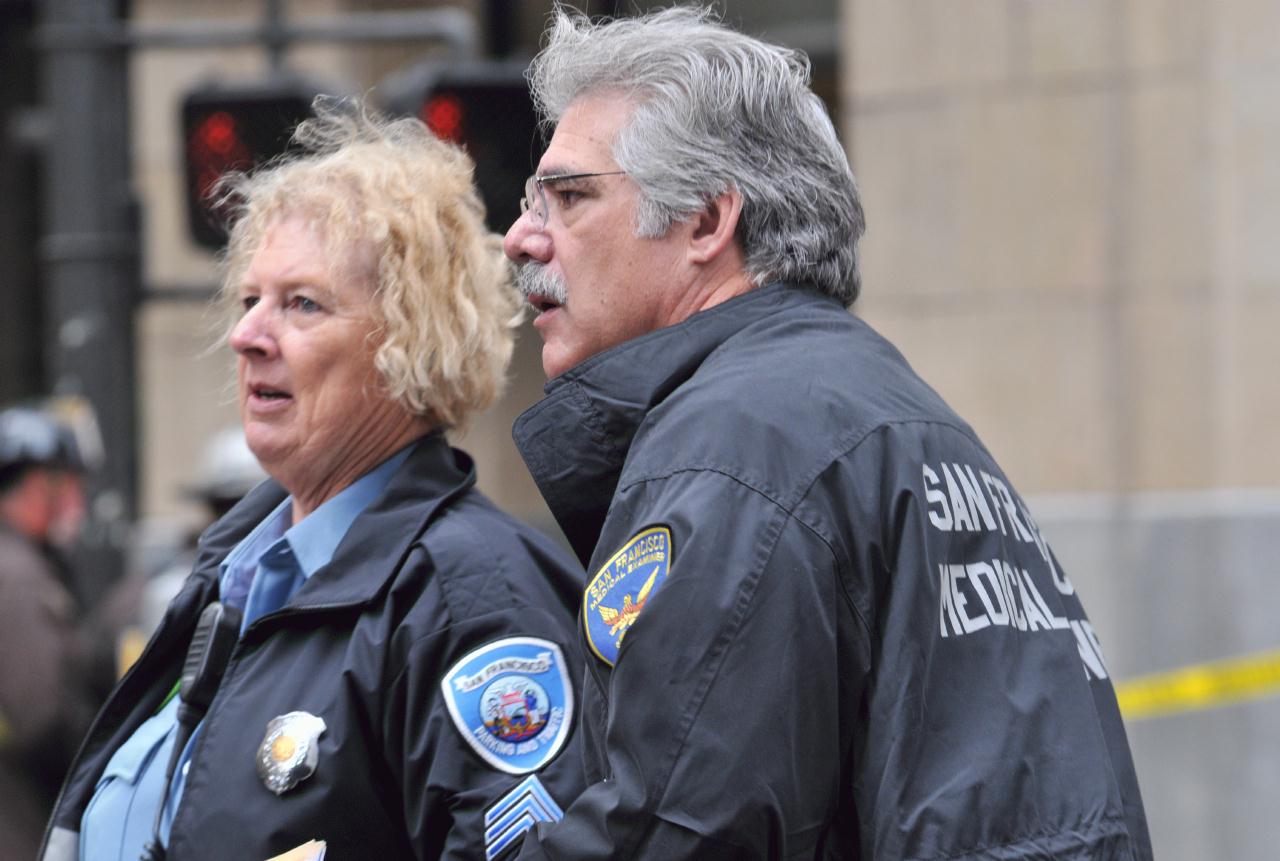 | |
|
Copyright 2008 Bryan Costales Wayne Donue was in an on-again/off-again relationship with his girlfriend Sue Chounsteux. A friend had emailed him notice about a City Readiness Exercise in the financial area. It looked interesting and was free, so he'd suggested to Sue they go watch. "Look," said Wayne. He pointed at the Medical Examiner just emerging from a car. "Do you remember Quincy?" "Who's that?" Sue was rocking periodically back and forth. Because, Wayne thought, her shoes weren't right for standing. "An old TV show about a Medical Examiner." "What's he doing here. This is just an exercise right?" "Quincy?" "No. The Medical Examiner. Nobody's dead right? It's just pretend." "Oh," Wayne said. It finally dawned on him she was talking about the real Medical Examiner. "It's probably his job. You know, he had to come." "A waste of money. I'm sure there's plenty of dead people in the City to keep him busy. I mean," Sue crossed her arms. "They could have stuck a paper Medical Examiner sign on the back of some volunteer college kid. If all he had to do is show up, I mean." "Look," Wayne pointed again. "Isn't that Fong? You know, the police chief?" Sue didn't reply so Wayne looked at her. Her arms were still crossed but now she was staring at him. "I'm going home," Sue announced. "I'll go with you." "No. You go to your home and I'll go to mine." A siren grew loud as another fire truck pulled up. Wayne turned to look. When he turned back, Sue was gone. Wayne crossed his arms. "Damn," he said to himself. "I guess our relationship is off again." San Francisco Readiness Exercise • Photo Posted Wednesday 20 August 2008 
 #BP20080820.jpg Add a comment or report a mistake
|
|
|
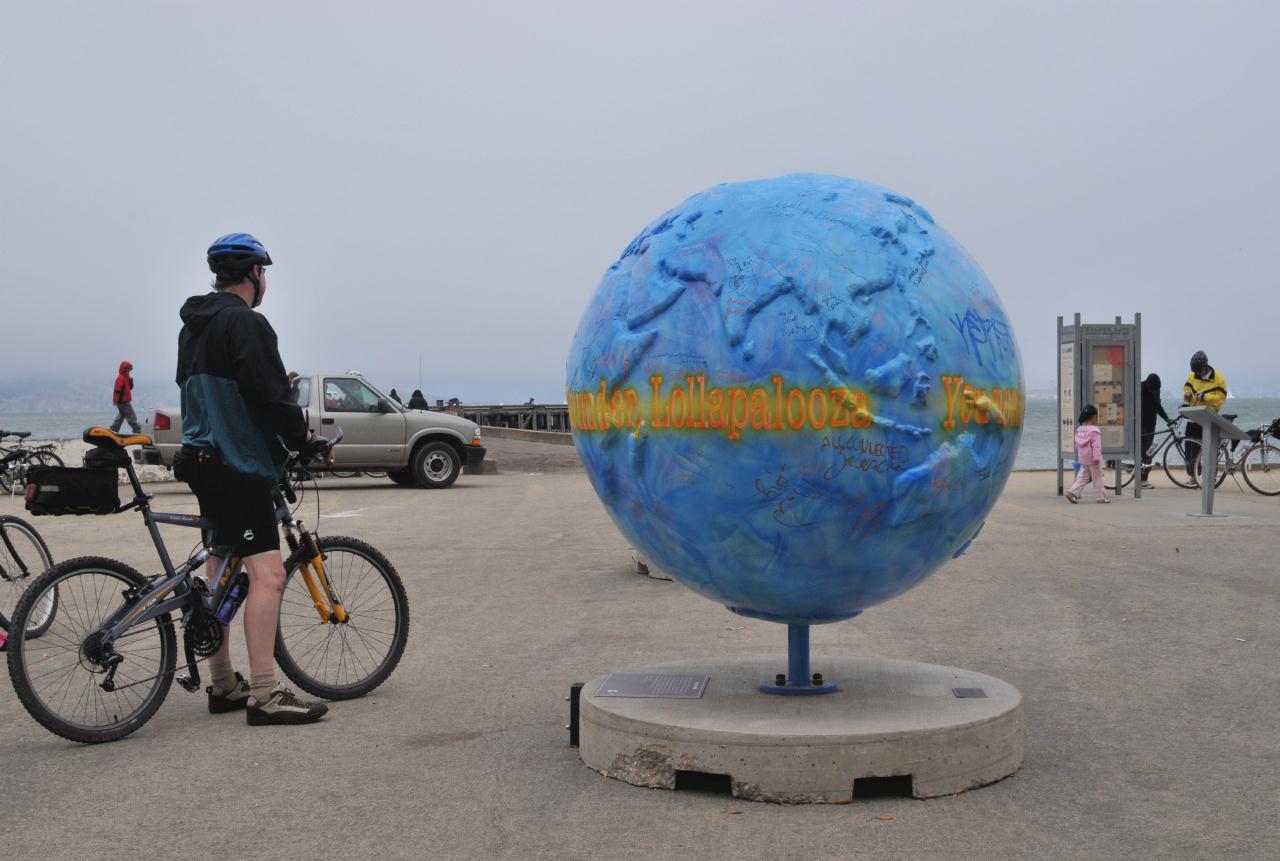 | |
|
Copyright 2008 Bryan Costales Matt Wintergrune rode his bicycle every Sunday for exercise and health. Sunday last, he rode through the Presidio grounds and down to Crissy field. There he encountered an exhibit of globes upon one of which was painted the word Lallapalooza. When Matt was seventeen, his mother became frustrated by his refusal to quit smoking. At the county fair she found the tent of a circus hypnotist and brought Matt inside. "To stop smoking I charge $30," the hypnotist declared in a thick slavic accent. "But I only have ten," his mother said and pulled two worn fives from her purse. The hypnotist looked Matt up and down. "I tell you what," he said at last and held his two fingers slightly apart. "A tiny price. Your ten dollars and a little harmless fun." Matt didn't want to cluck like a chicken, but allowed himself to be hypnotized anyway. Matt awoke unexpectedly the Sunday after seeing the word Lallapalooza, in the sunlight of mid-day, atop his made bed. He was naked and soaking wet. He had no idea what had just happened. Matt dashed into the bathroom to dry. He failed to notice the phrase "59 new calls," flashing on his answering machine. Dry and warm in his cotton robe, Matt stood atop a small ladder. From behind Christmas decorations he pulled a small tin box. He stepped down from the ladder and opened the box. Half a smoked cigarette lay on top, the last one he ever smoked. Under it was a small envelope given to him by the hypnotist. In a flowery fountain-pen script it read, "Open only when you wake up soaking wet on top of your bed." Matt tore open the envelope without wondering why he had never opened it earlier. From inside he pulled a business card. On the back, in block letters were the words, "Smallfry Taxes Lard." Like a curtain parting on a stage play, Matt's memory returned to him. "Oh my God," he said. He let the card drop to the floor. "Harmless fun my foot." Matt noticed his answering machine flashing 59 new calls. Then he was startled by a loud knocking on his door and shouts of, "Police, open up." "Mother," Matt lamented to her ghost self. "What have you done?" Artist: Paula Clayton • Cool Globes presented by Toyota • Photo Posted Monday 18 August 2008 • (9 August 2008) San Francisco, California • © 2008 Bryan Costales 
 #BP20080818.jpg Add a comment or report a mistake
|
|
|
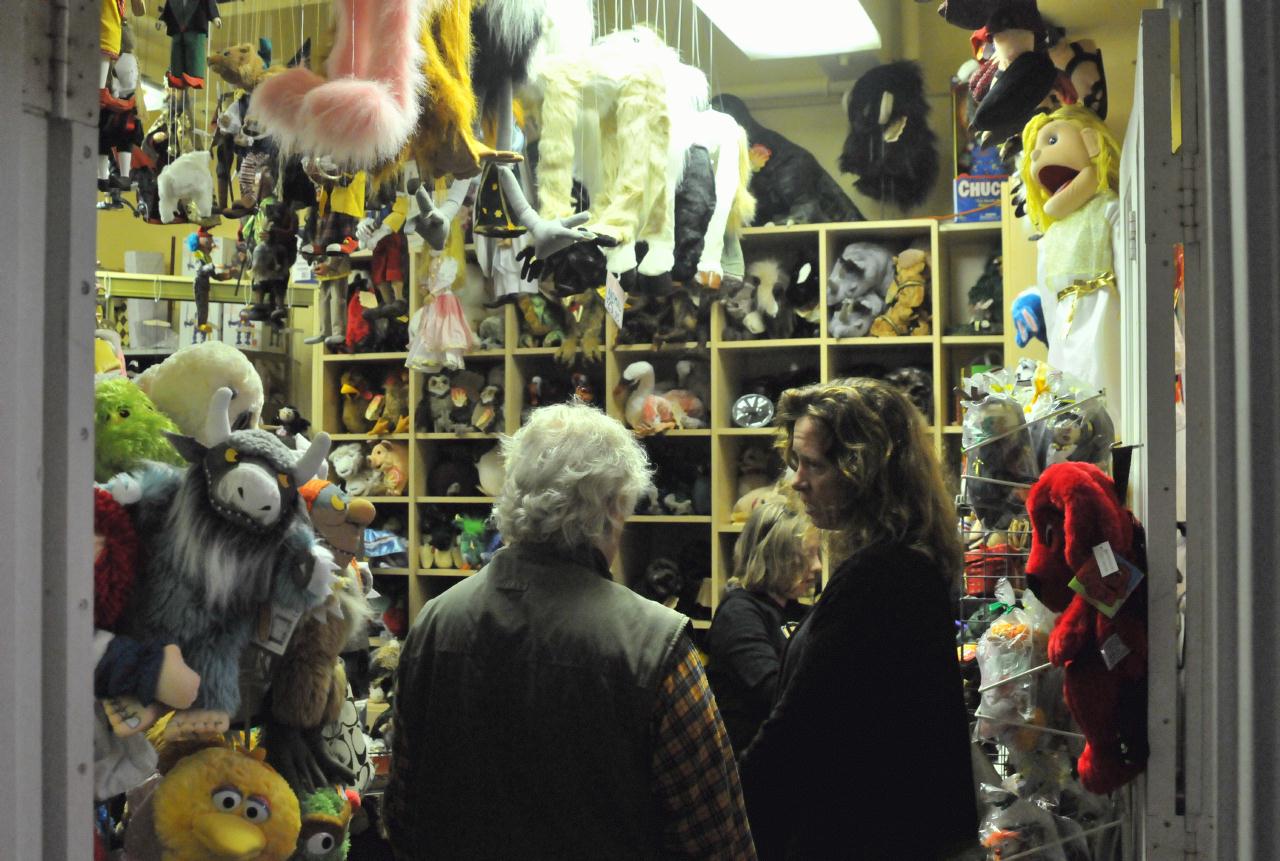 | |
|
Copyright 2008 Bryan Costales Young Ann Miller liked jewelry. Her younger brother Sam, liked magic. Her mother liked puppets, and her dad liked baseball. Ann saw the puppet stick out its tongue at her. She looked at her brother. His back was turned to her and he pretended to not pay her any attention. Ann wanted to say, "You did it, Sam. I just know you're hatching some monstrous plan." But instead she said, "Mom! Sam is making me see things." Mom turned to her brother, and said, "What are you up to young man?" "Nothing, Mom! I didn't do nothing!" "Anything," her Dad said. "Would you mind," Mom said to Dad. "Taking him someplace else so we can shop?" "No problem. Come on, Sam. Let's go to the baseball store." Her Dad and brother left. Ann wanted to say, "It was that puppet. That's the one that stuck its tongue out at me." But instead she said, "That one," and pointed. "Those are new," the clerk said. He showed them a small remote control. With this you can make it stick out its tongue, raise its eyebrows, and wiggle its ears." He demonstrated and Ann laughed. Ann wanted to ask politely, "May I try the remote control." But instead she said, "Me. Let me." "Sorry," said the clerk. "I seem to have mislaid the demo one. This is my last one so I'd prefer to hold onto it. Unless you want to buy it of course." Ann's Mom snapped her fingers. "That stinker." Her Mom hurried with Ann in tow across and down the stairs to the baseball store. There they discovered her Dad and Sam trying on team hats. "Okay Sam," her Mom said. "Empty your pockets right now." Sam knew not to hesitate, so he complied. Amid a remarkable display of junk appeared the other remote. Ann wanted to say, "You wanted to show how clever you were, but now you are unmasked." But instead she said, "I told you." Her Mom grabbed Sam by his ear. "Let's go young man. You have a shop owner to apologize to." Her dad remained quiet as they both watched Mom haul Sam from the baseball store. Her dad looked at her. "What do you say we get some ice cream?" Ann wanted to say, "You're so lame, Dad. I mean, really. How could you possibly think I could actually want ice cream?" But instead she said, "You bet!" Photo Posted Tuesday 19 August 2008 
 #BP20080819.jpg Add a comment or report a mistake
|
|
|
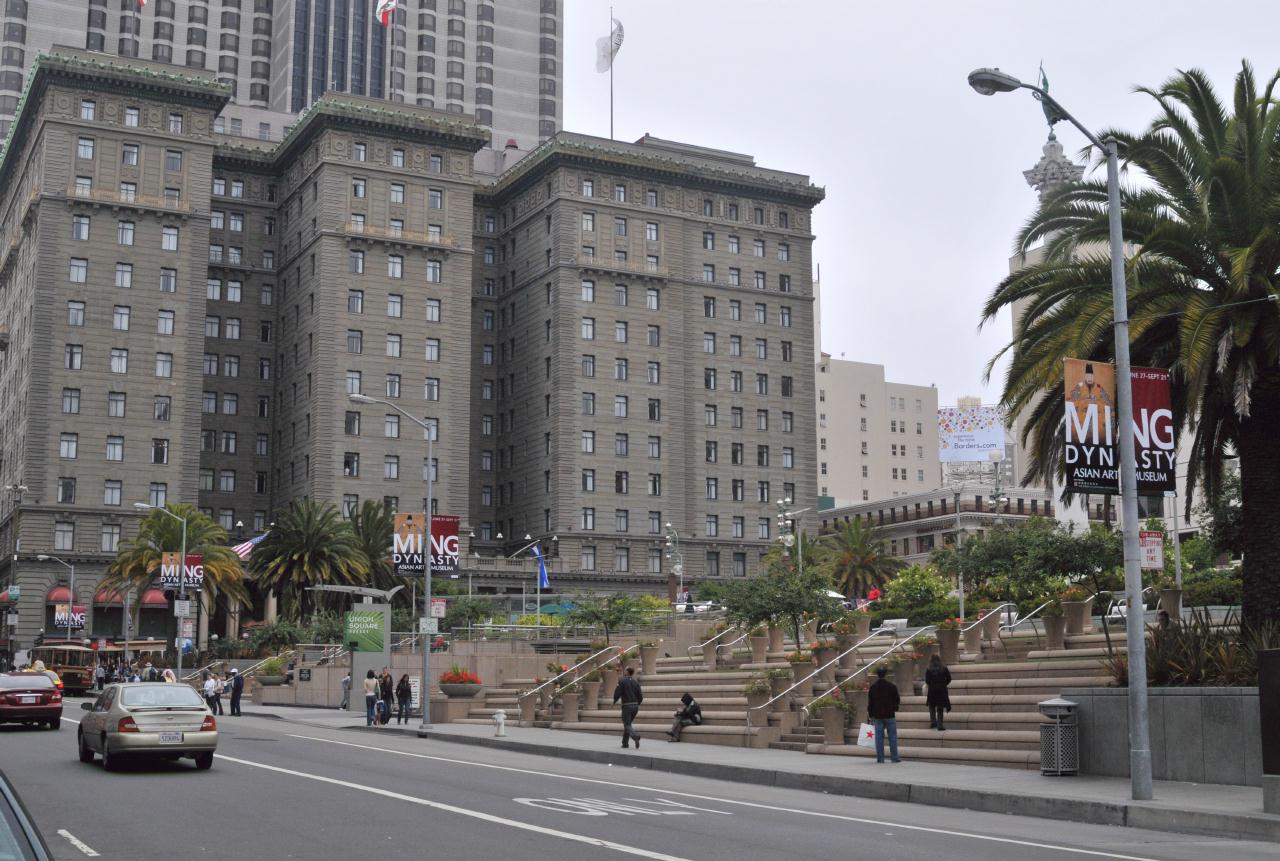 | |
|
Copyright 2008 Bryan Costales "Look at all those steps," Al Pawnski said to his ten year old daughter Luna. "I bet they sure make it easy to get up." "Those aren't steps, Dad. Those are seats. Can't you see? The steps are between the seats, the thin parts. As a rail." "Really?" "You need to get glasses Dad. It's clear as rain water." "No. I can't wear glasses. Glasses make me look old." "You're not old. How about contacts. You know, three, two, one." "I can't stand putting anything in my eyes. Who knows what kinds of infections I might get. I can't trust myself. Shaky hands. I'm too old." "Lasik surgery! That'll work. Hmm. Whistle as." "No. No surgery. Do you know how long it takes for me to heal at my age? Nope, not Lasik." Luna gave her Dad's arm a tug. "Let's go this way. Hmm. North. Alaska." Al didn't move. "No, let's not. There's a man smoking there. Smoke makes me sick. And second hand smoke is bad for you too. Promise me you'll never smoke." Luna looked and spotted a homeless man crouched by a wall, puffing on a long found cigarette. "Let's cross here," Al said and stepped to cross the street. "No!" Luna shouted and grabbed her Dad's arm stopping him. A big truck roared past a mere foot from Al's nose. Al watched it go then looked down at Luna. Luna's face was scrunched in thought. Then she said, "Bananas. As in yes we have no." "That truck almost hit me. Like age. Maybe I am old." "You're not old," Luna said. "Not if you can make a corny joke like that." She put up her fists boxer-style. "Tighten up." She punched her dad once in the stomach. "Still tight." "What happened to your game?" "Oops, tight? Tight? Ah, okay wad." The light changed to count-down numbers so they crossed over to the other side of the street. Union Square Area • Photo Posted Wednesday 13 August 2008 • (2 August 2008) San Francisco, California • © 2008 Bryan Costales 
 #BP20080813.jpg Add a comment or report a mistake
|
|
|
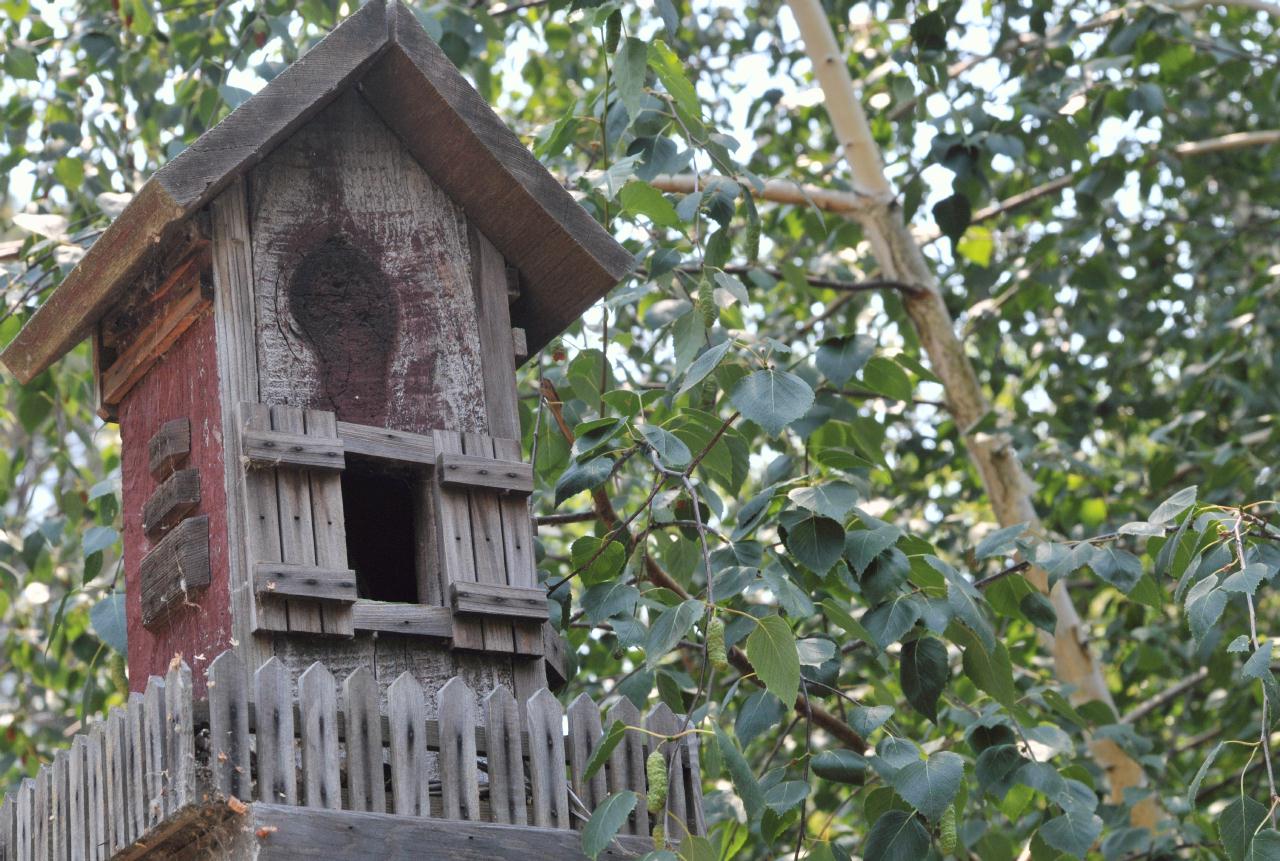 | |
|
Copyright 2008 Bryan Costales Brad Nipoline looked for a broom handle to knock down the bird houses. His sister Breeze wanted to keep them. But the garage and garden shed had been cleaned spotless. The realtor was doing her job well. "Use a rock or something," Breeze said. "I don't know. Maybe they were listed as part of the house?" "You think? Yeah. Well maybe." Brad looked around. "I didn't see Dad's old truck anywhere." "Probably sold it before he died." "Yeah. He stopped traveling when step-mom Maggie died." Brad and Breeze stood in the drive and looked at the old house with its For Sale sign. "We grew up here," Brad said at last. "I bet you anything. Ten years from now this will be a strip mall." Breeze didn't reply so Brad looked at her. Breeze looked up at her brother and said, "You know what I think? And don't take this wrong. I think the only reason Dad married Maggie was so he could get custody of us." "Why do you say that?" "He traveled all the time in that big truck of his. Making and selling those silly bird houses. How could he care for us if he was never home? No. I think he needed a new wife so he could keep us." "I thought Maggie was a great mom." "That's not the point. I thought she was great too. I just think she was a means to an end." The realtor lady emerged from the front door and waved for them to come to her. Brad frowned. "What do you suppose she wants now? Another leaking pipe?" "That would be your job. Leaking pipes are man's work." "You sound more like your mother every day." "Which one?" Brad had to think about that. "Both," he said at last. "No. Maggie. You're a little like Maggie." "A means to an end?" "No. Oh never mind. Let's go see what she wants." Photo Posted Thursday 14 August 2008 • (6 July 2008) Port Costa, California • © 2008 Bryan Costales 
 #BP20080814.jpg Add a comment or report a mistake
|
|
|
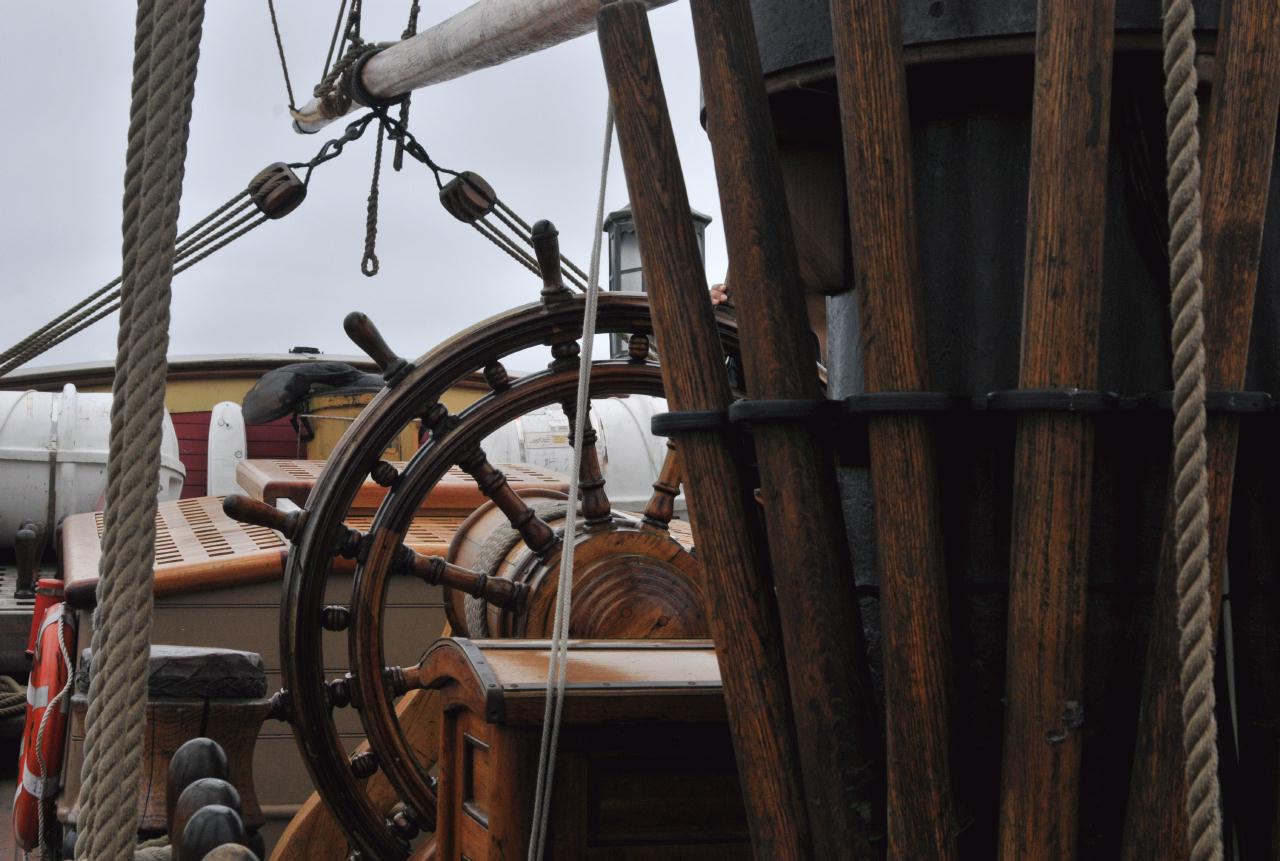 | |
|
Copyright 2008 Bryan Costales He dreamed of a ghost ship. The ship appeared deserted and adrift. As he walked toward the stern he glimpsed just the hint of a hand on the great wooden wheel. And then he awoke. Dave Dovetale had the same dream every night for the last week and had no idea what it meant. That is not to say, however, that others also lacked an opinion. Quite the contrary. The lady who handed him his tall soy latte said, "It probably means you want to leave on a long voyage. I bet its one of those cruises. You know, like through the Panama Canal." Goy The Master Wisher, who seemed to play games all day in the next cubical over at work shouted, "Father envy. Clear as bell. That's your dad's hand. He won't let go. My dad died. I guess than curses me with mother envy. Go figure." Betty Tambor, the woman he'd lunched with twice and who he might someday ask out on a date, asked him, "How do you know it's a ghost ship? If it's deserted, I mean. If it's a ghost ship, wouldn't it be full of ghosts? I mean they'd wander, you know, with skulls and bats. Really scary stuff. I mean a deserted ship. How is that scary?" Dave was home on Friday night and bored. He took a sleeping pill so that he could sleep through the nightmare without waking. But that turned out to be a mistake. On Tuesday, Betty bought a latte and asked the lady behind the counter, "Have you seen Dave?" "Sure, last Friday. He told me about his nightmare and bought a tall soy latte. I remember telling him to go on a cruise." "He wasn't at work yesterday." "Sorry, haven't seen him." Betty on Thursday night had a strange nightmare. She was on a ghost ship that was adrift. She moved toward the back of the ship and thought she glimpsed a hand on the wheel. She sensed her body trying to wake up, but she stuck to her guns. She took another step and saw Dave. He was steering the ship. He looked afraid. He didn't notice her. Betty awoke drenched in sweat. Friday morning Betty told her dream to the lady behind the counter. "Spooky," the lady said. "Either that or you really like the guy." Friday night Betty tried to telephone Dave. His phone rang three times then went to voice mail. The recording said his voice mailbox was full. Betty was spooked. To be safe, she took a sleeping pill. She thought it would allow her to sleep the night through. Betty was wrong. Festival of Sail, Tall Ship Bounty • Photo Posted Sunday 3 August 2008 
 #BP20080803.jpg Add a comment or report a mistake
|
|
|
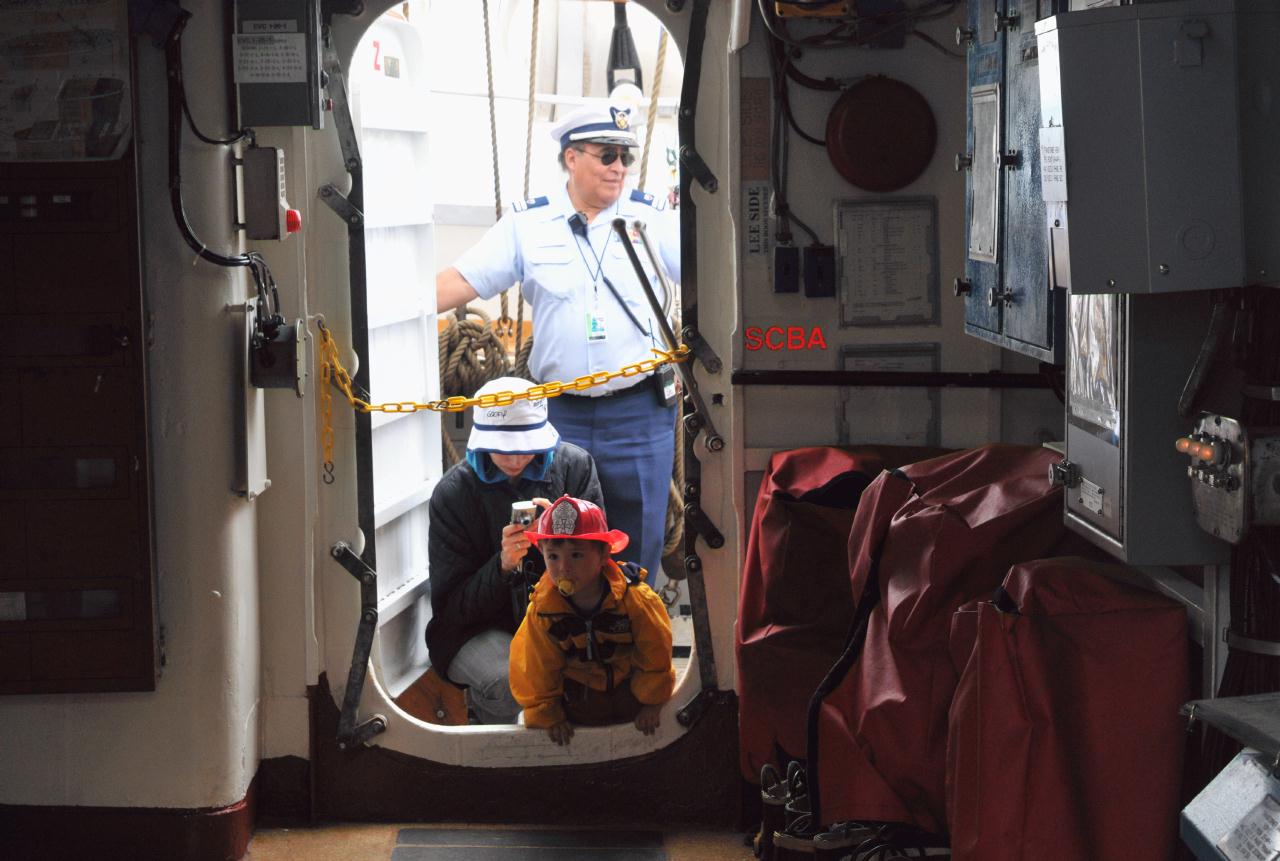 | |
|
Copyright 2008 Bryan Costales Randel Cogsan remembered a picture of himself on the Internet back when there was an Internet. He wore a fireman's hat while touring a sailing ship. He didn't remember the hat, nor did he ever want to be a fireman. He now played flute with the band on a tall solar-powered sailing ship. Randel leaned on the railing on the lee side of the ship. It was night so he didn't need a paper sun-suit. The tall ship, the Queen Mary VI, ran whisper quiet all night with its electric drives. A full moon was up. "You miss your wife?" Randel's friend Wang Won leaned on the rail too. Randel didn't hesitate. "Naw. She'll wait. She's a good woman." "I been divorced twice. You can't leave 'em alone a month at a time without problems. You know what I mean." "But you're gay. Your problem's different. I mean gay guys always want to play when the cat's away." "People are people. That's a truth you can take to sea." Randel looked at the moon. He knew his wife would be sound asleep. "I set her up in New Seattle with a vineyard. Keeps her busy all day. Her and the kids. Busy and out of trouble." "How many kids you have?" "Two now. The youngest was taken by a bear. Happened just before his naming day." "Wow. That's tough. Imagine that. Died without a name." Randel leaned on the rail in silence. Far aft he heard two bells ring. "We better get back to work." But Wang had already left. Randel shrugged and looked again at the moon. He threw a kiss to the moon and hoped it would bounce back to his wife. Sound asleep he knew, in New Seattle. Sound asleep he hoped. "Damn you Wang," Randel said. USCG Eagle Cutter, Festival of Sail • Photo Posted Tuesday 5 August 2008 
 #BP20080805.jpg Add a comment or report a mistake
|
|
|
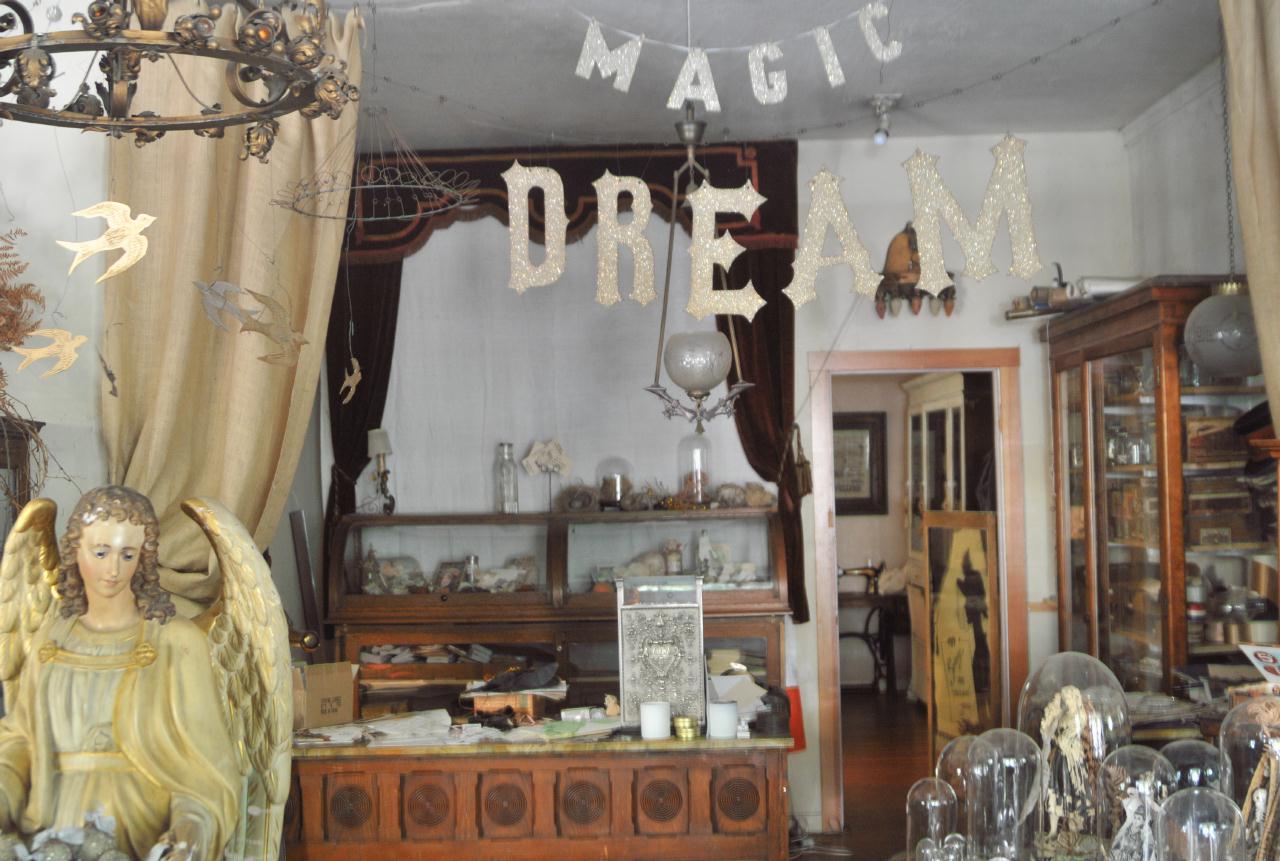 | |
|
Copyright 2008 Bryan Costales Ann Tuttle stood outside the magic shop and looked in. Her arms were crossed and she was a little drunk and a lot angry. Her two boyfriends towered on either side of her. They too stared in the window. "Choose me," Leo Debbs on her left said. "No, choose me," Ray Scalibsy on her right echoed. Leo and Ray were bikers, not the Jap-bike kind, but real bikers that rode Harley Davidsons. Both had sissy bars so she could lean back. She liked that. "Yeah," Leo said. "I can't share you any more. You have to choose. Me or Ray." "Act your age," Ann told Leo. "And don't sulk. Cripes, you're fifty-five, so act it." Ray bumped her shoulder. "See. I knew you liked me best." "Don't bump me." They stood silently for a few moments. Ann remembered how she used to smoke and how a moment like this could easily consume itself with a cigarette. "Hey," she said at last. "This is a magic store." "So what," Leo said. "I knew you liked me," Ray said. Ann took Ray's hand, then she took Leo's hand. "So let's make a wish. Let's wish our way out of this predicament." "I wish...," began Ray. Ann yanked his arm. "No. A silent wish. Close your eyes and make a silent wish." They all three closed their eyes and wished. Ann made her wish then opened her eyes. Her hands felt empty. The two men were gone. Ann smiled. "Women are so much better at wishing than men," she said and laughed. Then Ann stopped smiling. She realized she needed a way home. "Oh well," she said. "There's a whole bar full of drunk bikers. I'm sure I'll find a way home. The night is young." Leo opened his eyes and found himself on a lounge chair on a beach in Hawaii. He looked to his right and Ann was there sitting next to him sipping a drink with an umbrella in it. She met his eyes and smiled. Ray opened his eyes and found himself on the deck of his own catamaran in the Adriatic. The sails were up and a warm breeze moved the boat smoothly. Ann relaxed on the foredeck. She looked back at him and smiled. Photo Posted Friday 8 August 2008 
 #BP20080808.jpg Add a comment or report a mistake
|
|
|
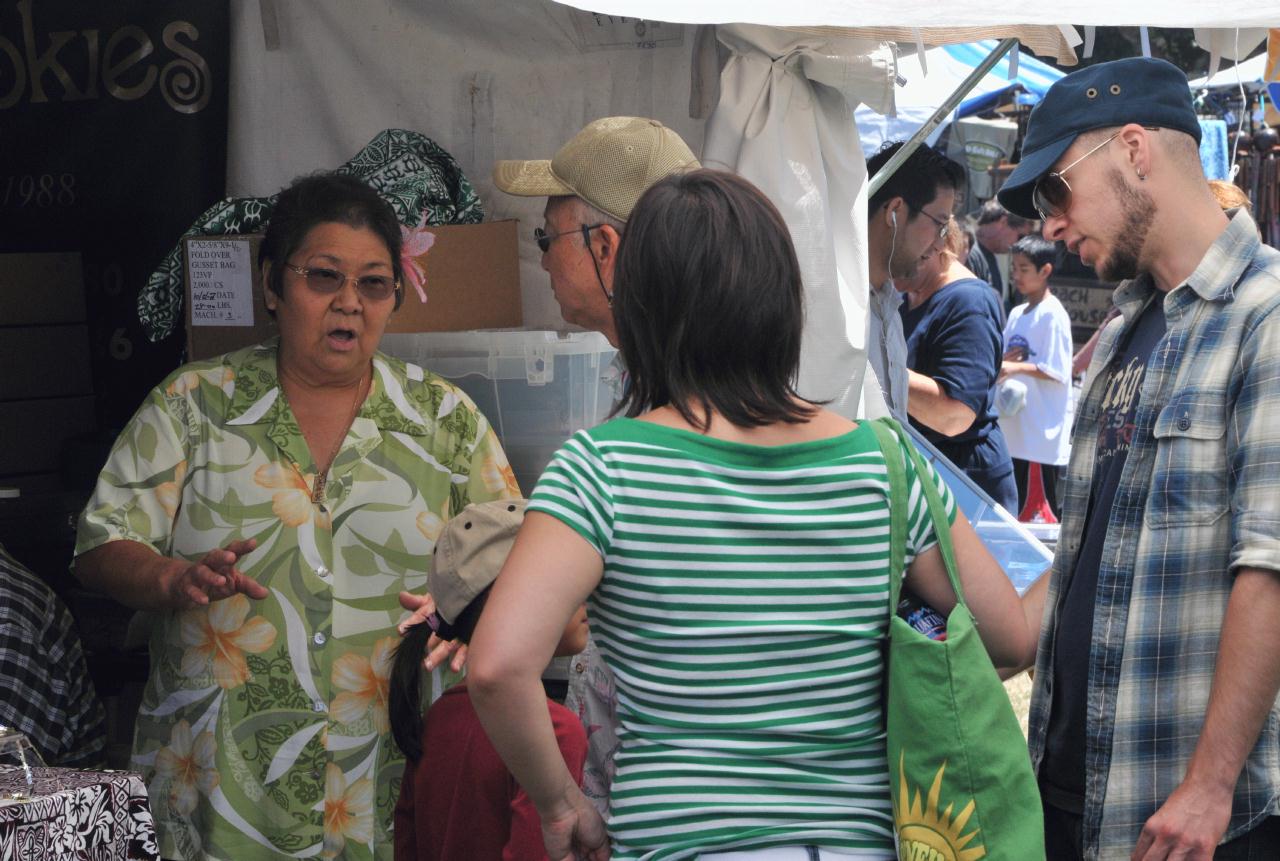 | |
|
Copyright 2008 Bryan Costales Benny Bogwagns saw two identical shirts in the same sizes hanging from a rack. He called his wife Donna over because she always had a way of getting a bargain. "I like this shirt," he told her. Sam Makui operated the booth with his wife Monna. He had his eye on a pair of tourists at the shirt rack. They struck him as bargain hunters. His wife was immovable when it came to bargains. She believed in retail or nothing. Sam tapped his wife and nodded in the direction of the tourists. Donna kept her nails polished bright red and sharp for just such moments as this. She deftly and invisibly broke and unraveled a key stitch in one of the shirts. Then she held it up and announced, "This shirt is damaged." Monna hurried over. "Let me see that," she said and grabbed the shirt. Hmm. I see what you mean. I'll have to fix this. You buy the other shirt." "But I don't want the other shirt. I want this one. You have to sell it to me at a discount. That's the law." "No," Monna wagged her finger. "Not the law. I fix. You buy the other shirt." Monna lifted the other shirt by its hanger. "You see. Not damaged." Donna tried to grab the damaged shirt but Monna would not let go. Donna shrugged. "Hey," she said. "If I buy the good shirt will you throw in the damaged shirt for free?" "Not free. Never free. You buy both shirts, I give you five percent off the damaged shirt." "Twenty percent." "Ten percent." Donna thought for a moment. Her husband like the way she looked skyward when she calculated in her head. "Deal. But the damaged shirt is used so no sales tax on that one." Both women smiled. The deal was done. After the tourists left, Sam said to his wife, "I love the way you bargain. We made out like bandits." Monna just smiled and went to help another customer. As they walked away, Benny took his wife's hand and told her, "I love the way you bargain. We got two fine shirts for five percent off each." But Donna just frowned and looked at her hand. The nail she used to break the thread had chipped. Aloha Festival, Presidio Grounds • Photo Posted Thursday 7 August 2008 • (2 August 2008) San Francisco, California • © 2008 Bryan Costales 
 #BP20080807.jpg Add a comment or report a mistake
|
|
|
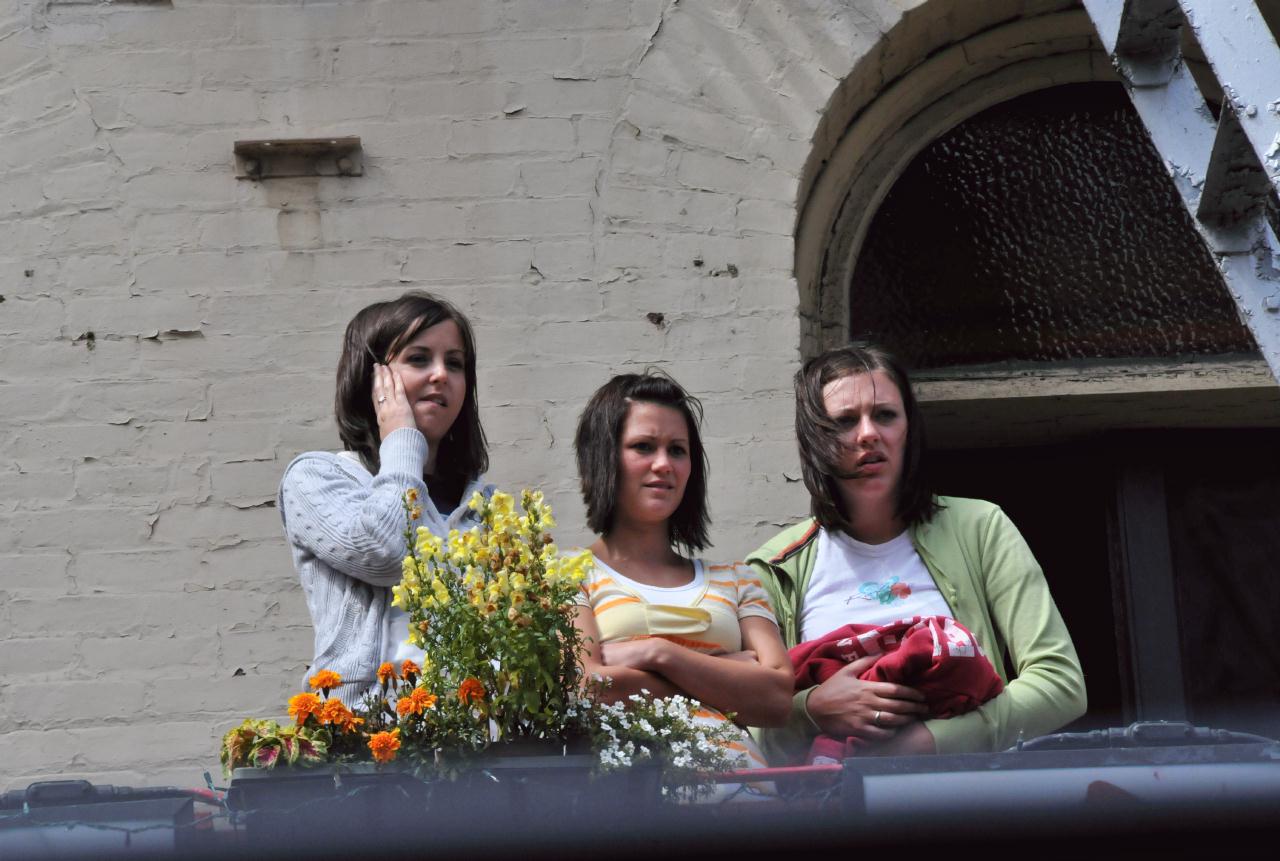 | |
|
Copyright 2008 Bryan Costales Every day since what the pundits called, "The End Of Days," the three Blanque sisters would stand on their porch and watch the goings on in the street below. At first it was only the odd animal racing up the street or being hunted by angry citizens. Later variations on people appeared. "Not as many angry folks today," Doris said. She was the oldest. "Yeah, I slept like a rock last night," Ann announced. "Hardly any gun shots or screams any more." "You can't fool me," Jill said to Ann and elbowed her. "I noticed another sleeping pill missing this morning. Our stash won't last for ever, you know." "Shh," Doris hushed her sisters. "What's that?" "Ew," Doris whispered as she watched a mob of people in the street below. "They're all bloody and act dead." "That's it," Ann whispered. She was the religious one of the three. "The dead have finally risen." "You mean zombies, don't you?" Jill elbowed Ann again. "Probably some disease. And there's no dirt on them. Wouldn't they be tracking mud if they rose from the dead. And besides, the nearest cemetery is in Colma." "Shh," Doris hard-whispered at Jill. "Must you carry on so?" "Look," Ann pointed up in the sky. "Angels." Doris shaded her eyes and looked. "No. I think they're bats." "Too big for bats," Jill said. "I'd say there were pelicans. But I've never seen a pelican like that before." "What's that whistle?" Doris asked. "Oh," Ann said. "The tea is ready. Let's go in. I made scones last night and they're still piping hot." "No you didn't," Jill elbowed her again. "You slept all night. You never got up to make scones. I know. I didn't sleep." "Oh," Ann said. "Just tea then." The San Francisco Zombie Mob • Photo Posted Sunday 24 August 2008 • (16 August 2008) San Francisco, California • © 2008 Terry Costales 
 #BP20080824.jpg Add a comment or report a mistake
|
|
|
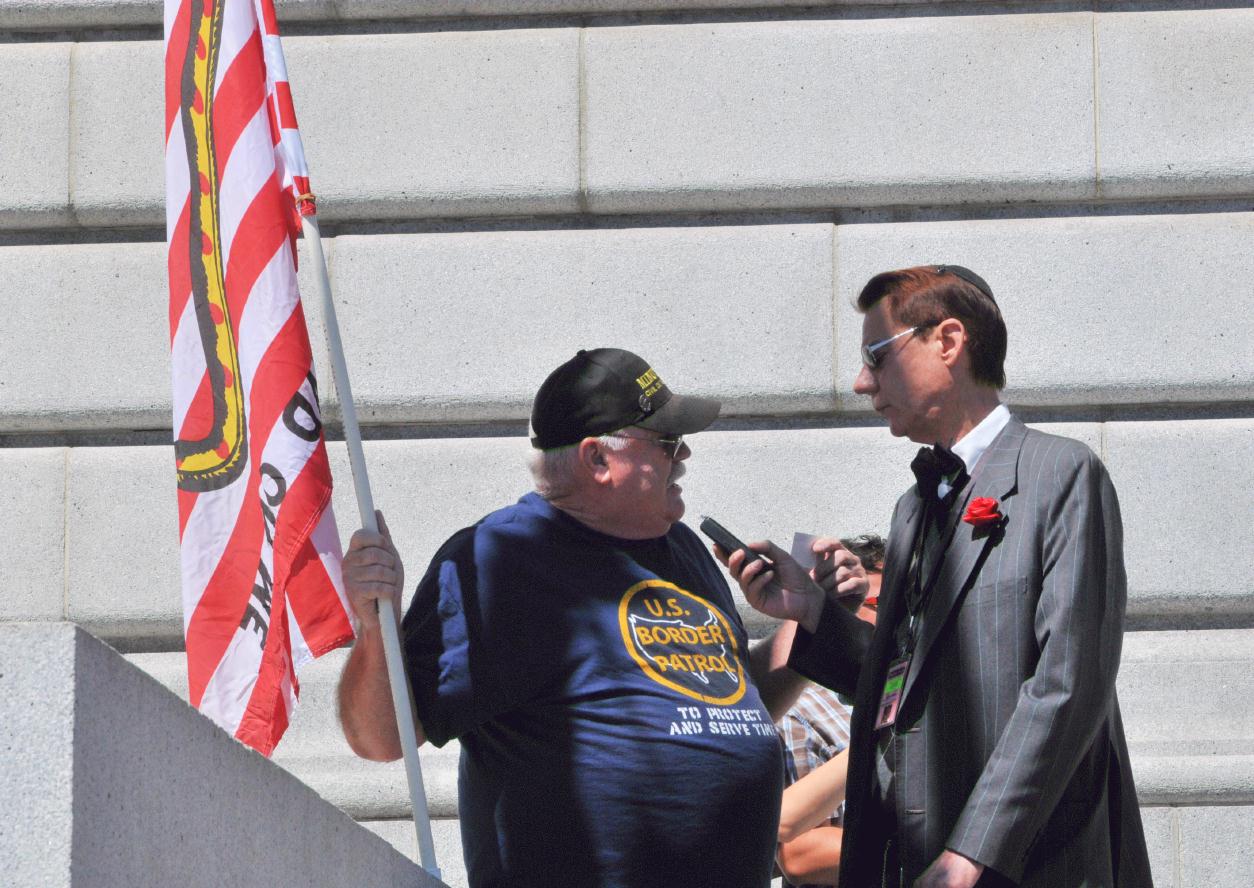 | |
|
Copyright 2008 Bryan Costales When Dave Pickens was a boy, his father played the Cole Porter song, "Be A Clown." over and over until his mother finally broke the record, "By accident." As an adult, Dave wore his squirting lapel flower everywhere. He wasn't a clown, but held in reserve the right to become a clown anytime he wanted. As an interviewer for a radio station, he often itched to squirt an interviewee. But always the gentleman, he never squirted anyone. Dave asked the Minuteman, "What do you have against immigrants?" "Nothing. I mean this country was made up of immigrants. I only object when left-leaners like you call the illegals immigrants." "Would you rather I call them undocumented workers?" "Another lefty term. They're Mexicans. They're not Americans. They're Mexicans and they ought to stay in Mexico." Dave felt the weight of the water bulb in his pocket. He felt the cool hose snaking up under his shirt to his squirting flower. He rotated a bit to bring the aim of the flower a bit more forward. Then he said, "But technically Mexico is part of America. I mean this is North America so we are all really Americans, even those from Mecico." The Minuteman poked Dave in the arm. "You're trying to cause trouble. I know your type. The big city reporter trying to rile up the hick from the sticks. Well I'm sorry. This interview is over." And with that, the Minuteman turned and made his way back down the stairs, carrying his "Don't Tread On Me," flag high so it could be seen. Dave clicked off his digital recorder and made his way back into the center of the protest. The weight of the bulb of water in his pocket seemed to grow moment by moment. Dave cast his eyes around looking for someone else to interview. A man next to him commented, "It's sure warm today." Dave looked at the man. He was short and over dressed for the day. Dave asked, "You want to cool off?" "Sure...," the man said, clearly unsure. Dave turned to face the man and squeezed the bulb in his pocket. A spray of water splashed across the man's face. The man stared at Dave in disbelief. Dave stared at the man, fearing he may have overstepped his bounds. The man smiled, then laughed and wiped his face with his sleeve. "Good one," he said and laughed again. "Thanks!" Then the man turned and walked away. Just like that. Dave hummed a little of "Be a Clown." He smiled. Then he spotted the next person he wanted to interview. Dave felt the bulb in his pocket. It was empty. But that was okay. He had interviews to perform and he felt good. Dave thought about how he felt. "I feel real good," he said aloud and smiled. A drop of water fell from his flower and splashed his shoe. The shoe moved, propelling Dave forward toward his next interview. City Hall steps, Civic Center • Photo Posted Saturday 2 August 2008 
 #BP20080802.jpg Add a comment or report a mistake
|
|
|
 | |
|
Copyright 2008 Bryan Costales Ezra Georgan had never sailed. The only reason he was on Chuck's boat was to impress his new girlfriend Helen. Chuck, as Ezra understood the situation, had use of his dad's 42 foot ketch while his dad was in Asia. The boat was old but spacious enough so that Chuck and his wife Alice could live on it, saving them the cost of city apartment rent. "Hoist the Mainsil!" Chuck bellowed in his most commanding voice. "What's a Mainsil?" Ezra whispered to Alice. He didn't want to exhibit his lack of knowledge to girlfriend Helen. "See that grey line there? The one on the mast?" Alice pointed and Ezra looked. "Pull that line to raise the main sail." Ezra leapt with agility intended to impress Helen. He grabbed the rope and pulled. Like magic, the huge sail began to climb the mast. Wind caught it and it began to fill and power the boat. But the wind proved too much for the old sail. With a strange rending sound the sail ripped, dumped wind, and brought the boat to a stop. "Haul it down," Chuck yelled. "Let go of the rope." Ezra did. The sail dropped. The boat stopped and wallowed in a circular motion that made Ezra feel queasy. Alice tapped him on the arm. "Work will keep your mind clear. Here. I'll show you how to flake and tie off the sail." Ezra kept busy. He glanced up every once in a while and each time saw Helen pacing nervously. Ezra felt relief when he heard the motor cranking to start. But the motor didn't start. Alice yelled down the companion way at her husband. "Something wrong with the engine?" Just then Helen began to shout. "Rocks! Rocks!" Ezra looked up and noticed the boat had drifted. It appeared to be drifting much too close to large rocks jutting from the water. "Have you noticed?" he asked Alice and pointed at Helen jumping on deck. "Some women lose vocabulary when they panic?" "Don't be mean." Ezra and Alice looked at each other in surprise when they both heard a loud bang. "It's just Chuck," Alice said. "Banging on the engine." "Shouldn't we drop the anchor?" "Can't. The chain is rusted in the raceway." Ezra frowned at Alice, then stood and walked over to Helen. "You're right," he told Helen. "Those rocks are getting pretty darn close." Helen put her arm around him. "Rocks," she whispered. Ezra felt her shake. The engine cranked again and this time caught. Ezra heard the reassuring chug chug of the diesel engine and felt Helen relax. Chuck appeared on deck and took the wheel. The sound of the engine sped up and the boat moved slowly away from the rocks. "Rum for all hands," bellowed Chuck. Helen looked up at Ezra. "There's rum?" she asked. "No," he hugged her with one arm. "Alice has an alcohol problem. There's never anything to drink on board. That's just a phrase." "Were you scared?" "Nope." "That's right, I bet you sail lots." "First time." "Really? You never sailed before? You were so brave." "Thanks." They snuggled quietly and together watched the houses drift past on shore. Festival of Sail • Photo Posted Wednesday 6 August 2008 
 #BP20080806.jpg Add a comment or report a mistake
|
|
|
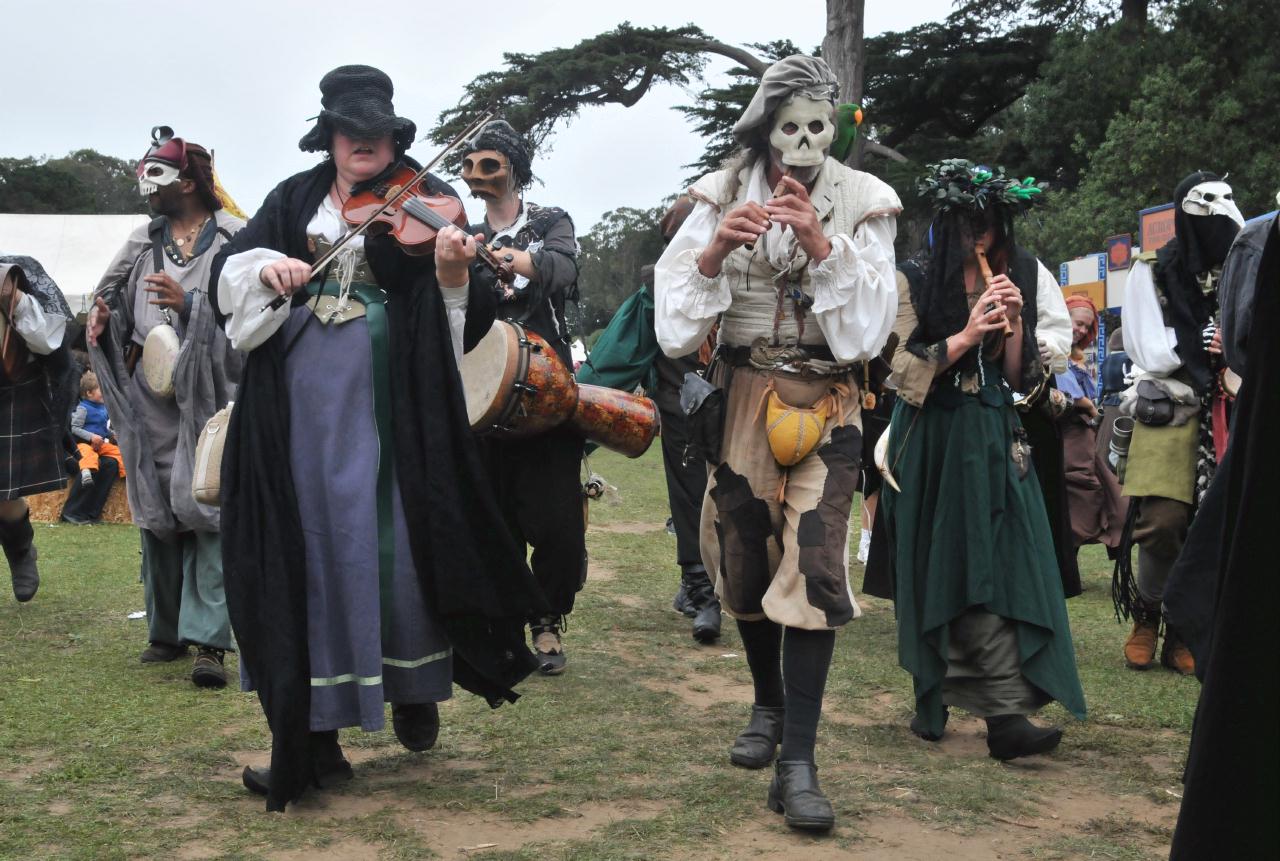 | |
|
Copyright 2008 Bryan Costales Deb McStown had dreamt the same dream over and over all week. Her brother Roger, who was to leave for college next week, tried to diagnose her dream every morning over a breakfast of dry cereal. Deb faced her sophomore year in high school, but didn't have to start school again for another two weeks. "When's dad getting back?" Deb asked her brother. "Same," Roger said and sipped his coffee. Roger was allowed by their dad to have coffee in the morning. Their dad was currently away consulting somewhere in Iraq but mom let him keep drinking coffee anyway. "I had that dream again," Deb whispered a bit ashamed. "I was doing web research this morning and may have found something. The masked musicians were common at funerals during the dark ages. I would have found more but the Internet went down again." "But what about the bones? The musicians walk past me and then I turn and they're gone. All that is left are piles of bones." "Hey!" her mother called from the bathroom. "One of you kids messed with this TV again?" "Maybe it's analog," Deb said to her brother. "Didn't they switch to digital?" "That's next year." Her mother yelled again, "I'm talking to you kids!" Her brother yelled back, "I'll look at it while you're gone." Then he looked at her and slapped his head. "Of course! The bones are like lace. You're dreaming about getting married." Deb stuck her tongue out at him. Her mother returned to the kitchen. "Who's getting married?" Deb yelled in a whisper, "Nobody!" Her brother set down his cup with an intentional thump. "If you don't like me diagnosing your dream, why not call one of your friends?" "What dream?" her mother asked. Deb snatched her cellphone from the table, flipped it open and held it up for her brother to see. "No bars." Her mother picked up her keys with a jingle. "You kids be good. I'm off to see your grandma in the home. You sure you don't want to come?" "No thanks," her brother said. "No way," Deb said. After her mom left, Deb leaned toward her brother. "This morning the dream ended differently." "Do tell," her brother said. He picked up his cup and held it with a pinky extended. Deb knew her brother was mocking her but continued anyway. "This time, instead of waking up I stood around the bones for a long time. Then I noticed a bright light, brighter than the sun. I looked and it was my right hand." She held up her hand for her brother to see. It was still peeling from last weekend at the beach. "It glowed brighter than the sun." "Memory of sunburn," her brother said. "Simple as that." Deb stuck her tongue out at him again and continued eating her dry cereal in silence. Outside she heard her mom's car engine crank in the drive way. The car didn't sound like it wanted to start. "Probably flooded it again," her brother said. Deb looked up at her brother but didn't say anything. She was beginning to get a bad feeling about the day but didn't want to tell him because she knew he would mock her. Renaissance Faire, Golden Gate Park • Photo Posted Friday 29 August 2008 
 #BP20080829.jpg Add a comment or report a mistake
|
|
|
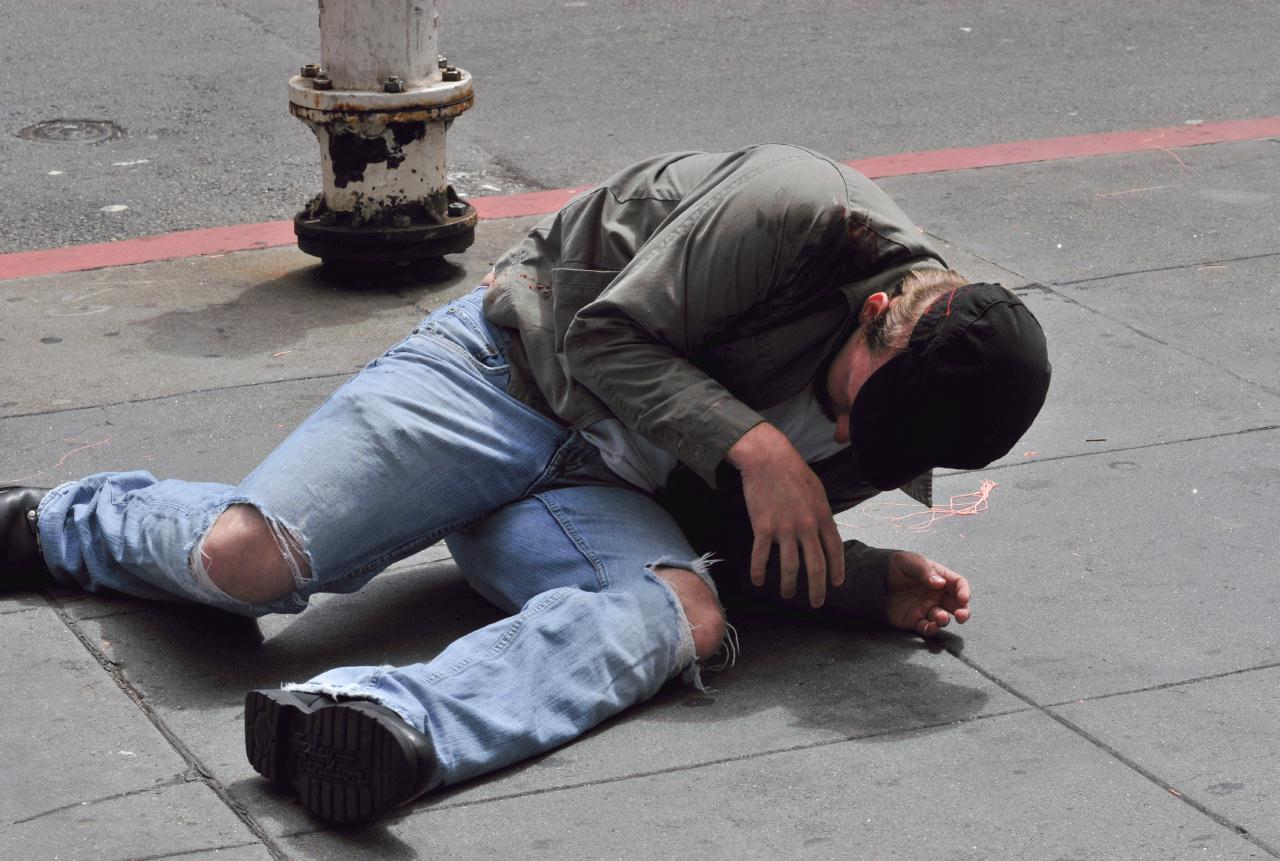 | |
|
Copyright 2008 Bryan Costales The lit sign over the door touted, "Become Your Dream. Super hero, cartoon character, mythologic creature, any or all for a small fee." Drew Tunderman was barely twenty, and had been raised without TV or the Internet, so had never heard of such a business before. He entered through a red tufted door and found himself in a large lobby lined with pictures. "What a place this city is," he said to himself. "Who would have thought it." Drew looked over the pictures while glancing at the line at the counter to see how things worked. One picture caught his eye. It showed a Zombie shuffling up a street, part of its body soaked with blood. "I like that." He got in line behind two adults. He felt a tap on his shoulder so turned to look. A girl about his age stood there all dressed in black. Even her makeup was black. Drew studied her. Her lipstick was black, even her fingernails were black. "What are you going to be?" she asked him. To Drew she seemed jittery. "A Zombie," he told her. "Oh...," she said in mock adoration. "You must be brave." "No," he began. But she started swatting his arm. "You're next," she said. "Hurry up." Drew stepped up the the counter and found himself facing one of those new robot-like attendants. "Your choice?" it asked in a smooth male voice. "Zombie." "Duration?" Drew hadn't thought of that. "How much for how long?" "Ten dollars for ten minutes. Twenty dollars for each ten minutes after that." "Ten minutes," Drew said. He slipped a ten dollar bill into the slot and got a receipt that read, "Booth 5." Before entering the corridor of booths he glanced at the girl. She was slipping a bill into the machine. The bill must have been wrinkled because the machine kept spitting it back out. Booth 5 was small but comfortable. Drew sat in the only chair under a large helmet. The helmet lowered slowly onto his head. Drew cowered in a doorway. "Don't let them see me," he muttered over and over. He was terrified. A few zombies passed without seeing him. Then one stopped and turned to him. It was horrible looking. Half its face was ripped away exposing all its teeth. The teeth were broken and jagged and flecked with blood. The zombie reached for him. Drew didn't understand how it could see him because it had no eyes. The zombie yanked him with amazing strength sending him sprawling to the sidewalk. He felt a sharp pain in his leg. He looked and saw the zombie trying to gnaw through his pants. Gunshots. The zombie fell beside him, dead. A soldier rushed up and asked, "Did it bite you?" Drew was too shaken to speak. He shook his head no. The soldier said, "You'd better find cover." Then he ran off. The pain began in Drew's leg. It felt like he was being hammered by invisible sledge hammers. The pain spread to both legs and up his torso. Under his skin it felt as if thousands of tiny monkeys were wielding tiny knives. Drew would have laughed if it hadn't hurt so much. The pain reached his head and his vision went black. A hunger flowered in his gut. A hunger like none he'd ever felt before. A hunger for human flesh. A hunger for human brains. The helmet lifted and the room lights brightened cheerfully. A female voice said, "Please follow the lit arrows to the exit." The voice repeated the message in a dozen other languages. Outside in the bright sunlight Drew encountered the girl again. "How was it?" she asked. "It hurt," he said. "I don't think I want to do that again." "I sure want to," she said. Her eyes couldn't seem to focus on him. She reminded him of a drug junky he'd read about in a book once. "What were you?" Drew asked her. "The green fairy," she said and waved her arms. "You know, like on the absinthe bottle. You going to go in again?" "No." "I would but I don't have any more money. You got any you can let me have?" "That was my last ten," Drew wisely lied. He really had another fifty in his pocket. "Tooo Baaad," the girl sang. She spun and pranced her way along the sidewalk. Drew watched her stop every once in a while and ask for money. Drew watched her until she was gone. "What a place this city is," he said aloud to himself. "Who would have thought it." The 2008 San Francisco Zombie Mob • Photo Posted Friday 22 August 2008 • (16 August 2008) San Francisco, California • © 2008 Bryan Costales 
 #BP20080822.jpg Add a comment or report a mistake
|
|
|
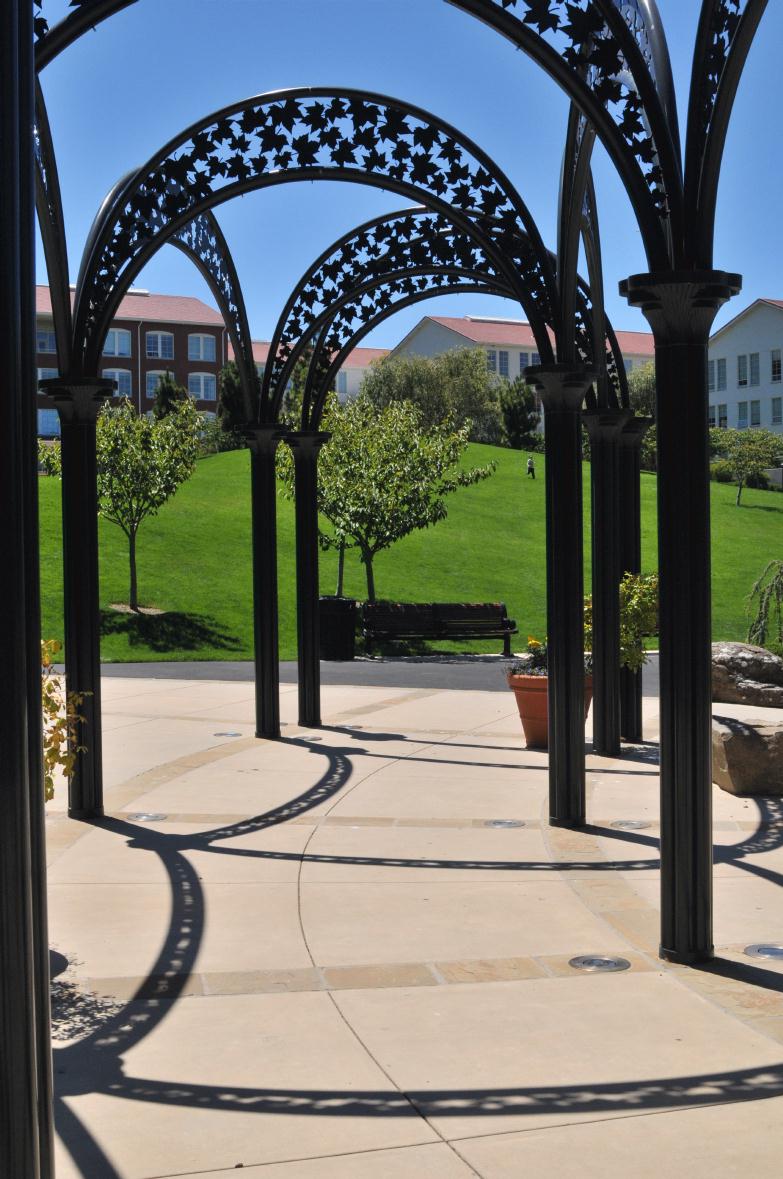 | |
|
Copyright 2008 Bryan Costales The last in the sequence of notes said, "Under the arches built of iron leafs." Zoe McDomecle had been set up on another of her roommate Dolores' blind-date adventures. "Look uphill," the note continued. "He'll wear a yellow jacket." Just once, Zoe wished she could preview the guy from a distance before he saw her. Again, her roommate had planted the last note where she would be seen finding it. Zoe looked up the hill. There was a guy in a yellow jacket who appeared to be reading a note. He looked up from the note, then down at the arches and spotted Zoe. He waved. "Oh no," Zoe said. "Not a waver." She nodded at him. If he were worth his salt, he would come down to her instead of making her walk up hill. The man waved again, but this time it was a beckoning wave. "Oh no," Zoe said. "He wants me to go up hill." The sound of sandals approached Zoe and passed her. A tall woman dashed past and started up the hill. The man came down to meet the woman. They hugged. Zoe felt embarrassed and relieved. "But where is my blind date?" The couple held hands and walked down the hill. The man called out as he approached, "Is your name Zoe?" That caught Zoe off guard. "Yes," she said. "Why yes I am." The man pulled an envelope from his pocket and handed it to her. "I was told to give this to you." They both smiled at Zoe as if they were in on a joke and Zoe was not. Then they walked away. Zoe muttered, "Thanks," then opened the envelope and pulled out the note. "That was Tom Hillmen," the note began. Zoe turned and peered at the departing couple. "Nice build," she said then looked at the note again. "I have it on good authority," the note continued. "That Tom and his current flame are on the splits. Call him in a week or two if you want." A phone number was included at the end. "You're a sly one, Dolores," she said. Zoe looked for the couple again but they were gone. "That's different," she said. She realized she got her wish. This time she would be able to screen the man first. Zoe smiled and whistled a tune. Then she climbed the hill just for the heck of it. The Presidio • Photo Posted Saturday 9 August 2008 
 #BP20080809.jpg Add a comment or report a mistake
|
|
|
 | |
|
"What do you mean I must like dogs?" Bob Brisket had driven to pick up Sue Sontag for a date. He'd made the mistake of pulling past her --distracted as he was by her outfit-- and squealed to a stop with his noisy brakes. She now sat next to him radiating first pomegranate then strawberry. The mixture struck him as smelling cheap. "That bumper sticker on the back of your car. I thought you were a dog person." "Oh, you mean the 'Dog is my co-pilot,' bumper sticker? It came with the car." "You don't like dogs?" "Can't stand them. They shed, bark, have fleas, and chew up your stuff." Bob watched her pull a stick from her purse and gloss her lips. She re-seated the stick and looked at him. "So it's a ruse. You drive a car that makes girls think you own a dog, and you hate dogs. Do I have that right?" "I owned a dog once. Actually my folks did. I was a boy. I could throw a Frisbee and he would catch it." Bob waited for Sue to put on her seat belt. He didn't want to get a ticket. "That's it?" She looked at him without a smile. "You threw a Frisbee and that makes you a dog person?" Bob thought about that. "Yeah. I guess I'm lucky the bumper sticker didn't say, 'Baby on Board.'" He laughed at his own joke. "So you don't like kids either?" "What do you mean?" "You don't have a baby on board, but you said you did. So it's just like the dog. Only I bet you never threw a Frisbee to a baby when you were a boy." It dawned on Bob that his date might never put on her seat belt. "You going to put on your seat belt so we can go?" "No." Sue crossed her arms and looked hard at him. "Let's talk for a while." "I didn't do anything! Why are you being so hard on me anyway? I mean the bumper sticker really did come with the car." "That's not the point." "What do you mean?" "You're basically --at your core I mean-- a dishonest person. You say one thing with your car. You say something else entirely to me. How could I ever trust you?" "It's just a bumper sticker!" "I think this date is over." "What do you mean?" "Bye Bob." Sue opened the car door. The overhead light came on. She looked up and noticed the ceiling in the car for the first time. Hand prints had been pressed into it. Bob noticed her glance up and frown. "They came with the car." "Bye Bob." She got out and slammed the door. Bob watched her walk up the front steps of her apartment building and vanish inside. She never looked back. Not once. Bob scratched his head and thought. "I wonder how you take a bumper sticker off?" Nobody answered, of course. He was alone in his car. Bob started the engine and drove home. He was half way home when he realized the radio was off. He turned it on and sang with it the rest of the way. It was a country song about dogs. END © 2008 Bryan Costales 
 #BP20080831.jpg Add a comment or report a mistake
|
|
|
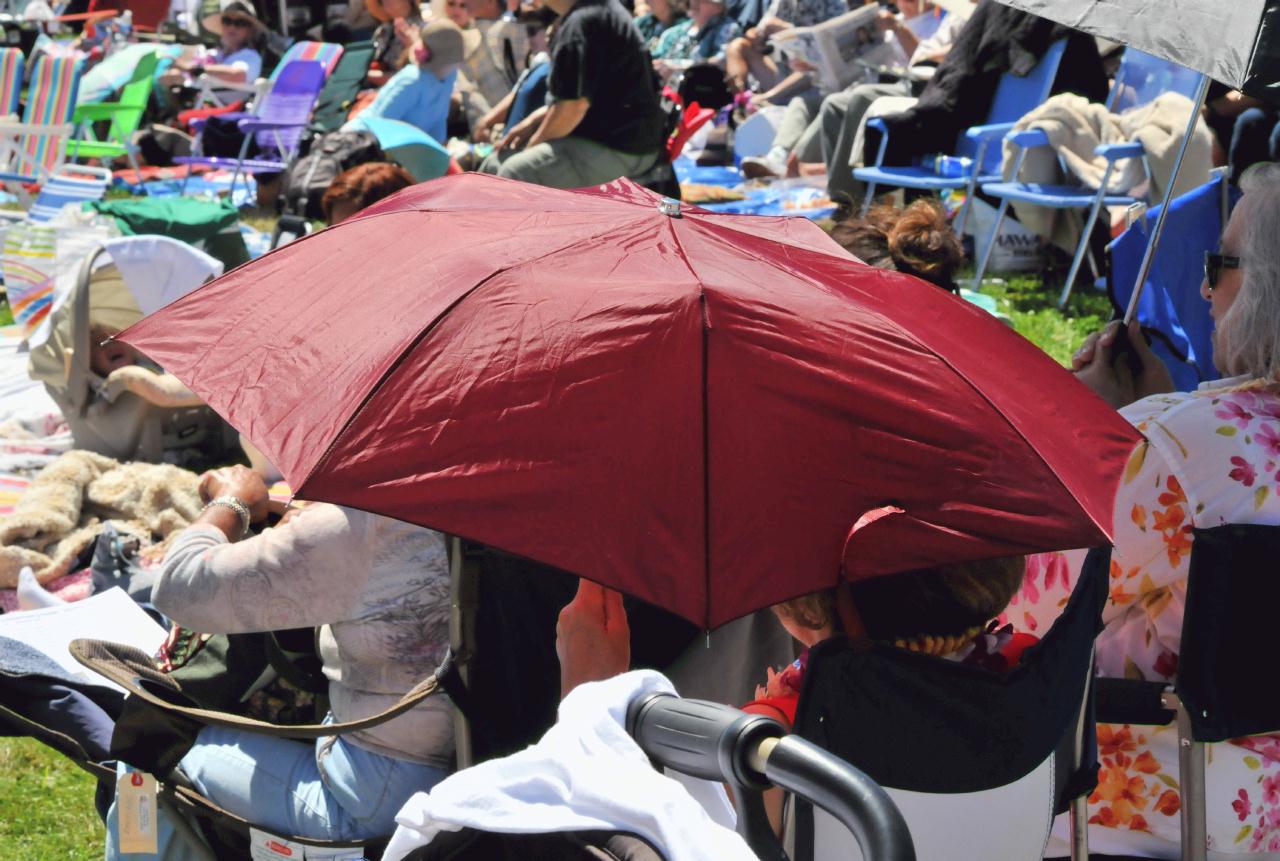 | |
|
Copyright 2008 Bryan Costales Old Wallace Brakford was feeble of body but not mind. Trapped in his wheelchair, he was at the mercy of his granddaughter Bevy L'Mony. Wallace was getting too hot as the fog burned off. When the band ended so he could be heard, he told Bevy, "Just because your marriage went south, that's no reason to be mean to me." "What is is now gramps? You need water again?" I'm hot. I want an umbrella like that one." He gestured with two fingers at a nearby great burgundy umbrella. "I already told you. They don't sell umbrella's here. Just parasols, you know, with flowers. And stop saying my marriage went south. It went sour, not south." "Flowers are sissy." "No they're not. A parasol would be sensible. And besides, you're no manly man anymore yourself. Try giving an inch for a change." The music blared loud again so Wallace stopped talking. He watched drummers on stage. They pounded and swayed to the rhythm, all moving like one, hypnotically back and forth. Wallace smiled. The performance was good. The music ended. Wallace said, "He went to LA. That's south." "Look," Bevy said and rose to he feet. "I'm going to get some bottled water. You want anything?" "An umbrella like that one." Bevy laughed as she walked away, a hard mocking laugh. Wallace tried pulling the towel on the back of his wheelchair up over his head. It got stuck so he could only pull it to his shoulders. He sighed and decided to just sit in the sun and suffer. A cloud dimmed the sun. A bit of welcome shade. Wallace looked up. The sky was too blue and covered in flowers. "I got you a parasol." "Thanks," said Wallace, and he meant it. "You always have been a terrific granddaughter." Bevy laughed. Then she laughed again. "Here," she said. She twisted open a bottled water and handed it to him. "Drink this." "Alice in Wonderland," he tried to say but the music blared again. This time it was singers. Wallace leaned back in his wheelchair and smiled. He enjoyed the shade. He listened to them sing. Aloha Festival, Presidio Grounds • Photo Posted Sunday 10 August 2008 • (2 August 2008) San Francisco, California • © 2008 Terry Costales 
 #BP20080810.jpg Add a comment or report a mistake
|
|
|
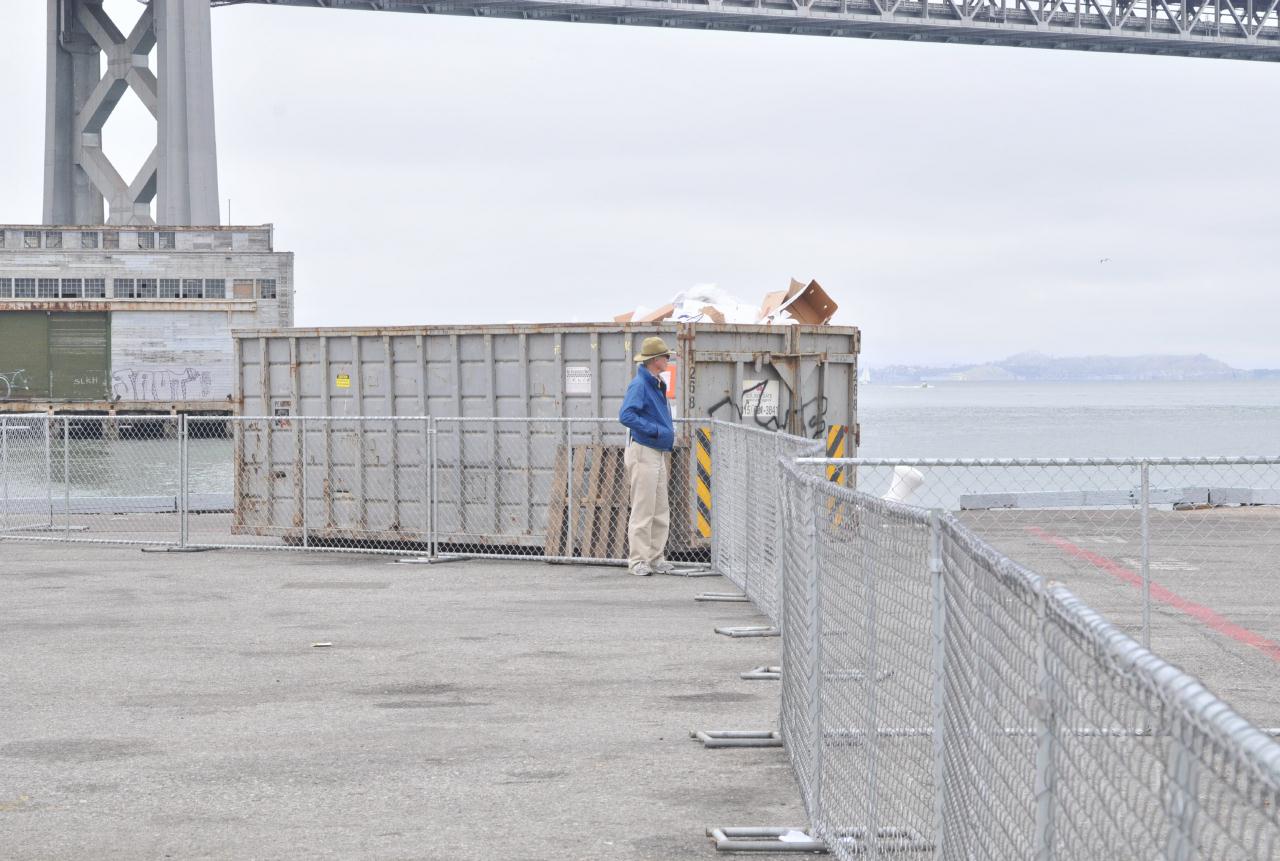 | |
|
Copyright 2008 Bryan Costales Zeno Darrunda stood by a fence at the far corner of a pier and felt his blood boiling. His mother had been the first to say that phrase. Whenever he got super-mad, she would say, "Your face is red, your jaw is set, your blood is boiling again." Zeno looked out at the bay. The fog over Oakland tried to be calming. Zeno remembered standing in line with his wife and daughter. It had been the wrong line but nobody had told them. Zeno had become angry. He'd yelled an obscenity at the person behind the counter. His blood had boiled. He'd stomped off to cool down. Zeno looked around. He spotted his wife and daughter near a booth for tickets to tour one of the tall ships. His daughter waved what looked like three tickets with a gesture that looked like, "Come here." But Zeno wasn't ready. His blood still boiled. Another man walked up to his wife and daughter. They hugged. Zeno looked at his left hand. No ring. He remembered giving his ring to a homeless man the day after his final divorce papers arrived. "That's right," he said. "I'm not married anymore. Haven't been in years." Zeno watched the strangers board the tour. Zeno remembered getting mad at his wife one night long ago. His blood had boiled. He'd fled that night and woken up the next morning a thousand miles away in another town with a hangover. He'd remembered feeling ashamed. "Why am I here in San Francisco?" he asked himself. Zeno vaguely remembered living in Key West. He vaguely remembered pushing someone hard. For some reason the memory made his blood boil. It seemed to boil even though he couldn't remember. Zeno began to walk. He wanted to escape. He couldn't remember what he did, but felt angry anyway. "I need a drink," Zeno said. The blood pounded in his ears. He thought he was fleeing Key West, but really he was fleeing his past. All of it. His mother, his father --strangely calm like an olive floating on a martini. He fled his wife. He fled his fate. "Why is that man's face so red?" Zeno heard voices but didn't look. "Don't talk about strangers dear. They might get angry." Zeno laughed at the irony. Zeno laughed and felt cracks form all over. Zeno crumbled inside. His anger leaked away. He was suddenly calm again. Zeno smiled at the mother and her boy. Zeno remembered just then. He remembered something bad. He remembered doing something he never, ever wanted to remember again. He felt very ashamed. He said to the woman, "Can you please point me in the direction of a policeman. I want to turn myself in." Festival of Sail, Piers 32/34 • Photo Posted Monday 4 August 2008 
 #BP20080804.jpg Add a comment or report a mistake
|
|
|
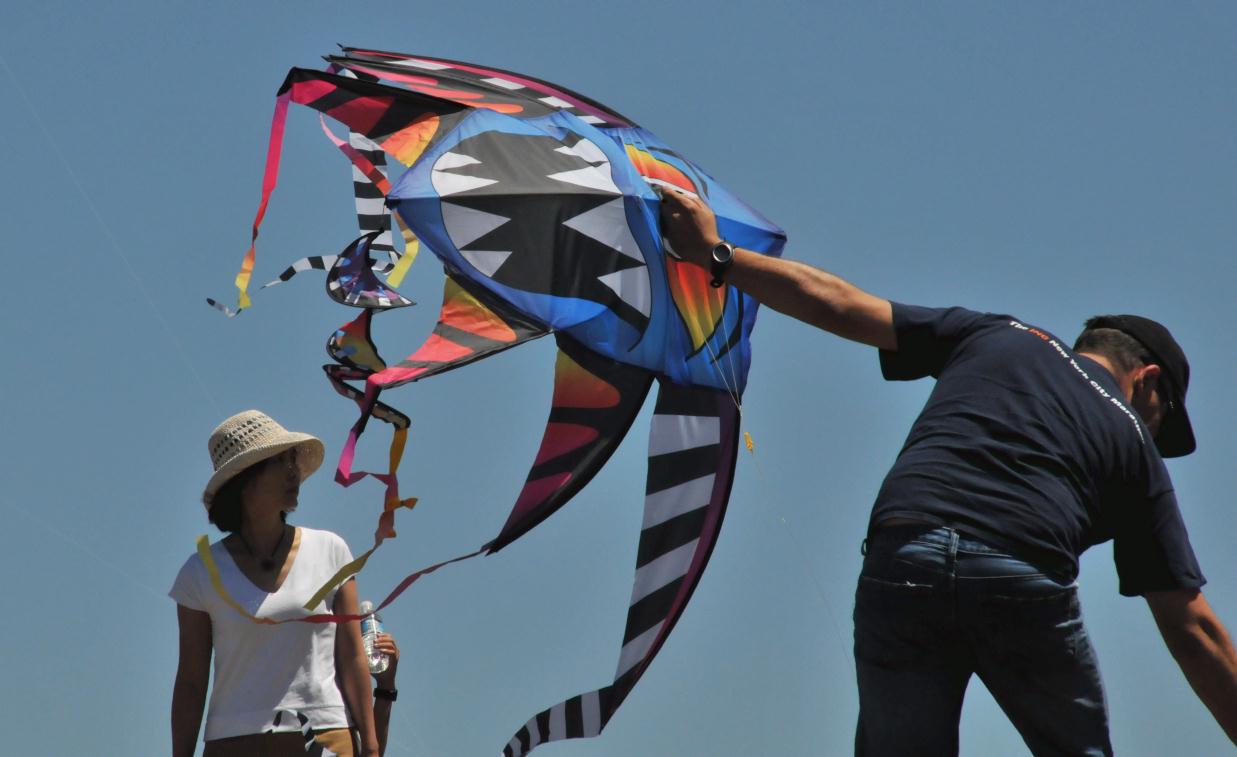 | |
|
Copyright 2008 Bryan Costales Benny D'Brokmill was skunk with perfume. He preyed on women using tricks he had learned from his father. "Son," his father once said. "Pay attention to the birds. The peacock grows glorious feathers to attract the plain pea hen. Just like that, a young man must always strive to be pretty and display well." Benny's father went missing when Benny was a teenager. His mother began to take pills and drink. Benny, on his own, developed a skewed view of life. Benny was at the kite festival. He wasn't sure, but someone in a bar may have told him it was a great place to pick up women. He wore a snug short sleeve shirt to better display his muscles. He'd bought the brightest, biggest kite he could carry on the bus. A woman approached with a young boy in tow. Benny bent to pick up his string. One hand held out the kite, the other reached for the string. A tableaux. A pose. Then Benny felt a ping. Just a single ping somewhere inside his back. To Benny, that ping reminded him of the sound a marble might make if dropped from a great height onto a concrete floor. Sharp and exact. Benny also knew that the marble mustn't hit a second time. If it did, he feared it might shatter. Benny stood straight. His lower back felt sore. He moved this way and that but it still felt the same, it hurt. "Mister." Benny looked at the young boy who mere moments ago had been in tow. "What?" "You dropped your kite." Benny realized the kite and string now lay on the ground. The hurt in his back felt like it wanted to creep higher. "That's okay. You can have it. I need to find that bus." "Thanks!" the boy shouted. Benny tried to walk back toward the distant bus stop. But with his first steps he noticed he now hobbled. Someone touched his arm. "Excuse me," it was a woman's voice. Benny stopped and looked at her. It was the woman who had the young boy in tow. "What?" Benny asked, and heard a sharpness in his voice. "Thank you for letting my son have the kite." She squinted and looked hard at his face. "You look pale. Are you okay?" For some reason her gaze reminded Benny of the gaze of a fortune teller at a fair long ago. He'd had his cards read. He'd been told he would be crippled while still young. Benny had laughed at the fortune teller. Benny said, "It's my back. I think I hurt it." "Your back," she said. "That can be serious. I'm a nurse. You'd better lie on the lawn right here. Flat on your back. I'll call 911 and get you an ambulance." Benny tried to lie down but his legs buckled and he fell. He rolled to lie face up and stared at the sky. Inside his head his father yelled, "Never be ugly. Never be the ugly duckling." "I'm not the ugly duckling," Benny said. "No you're not." The woman patted his arm. "You're not ugly." Benny closed his eyes and tried to ignore the ache in his back. From long ago, in a distant town, from a twisted youth, Benny remembered standing outside the locked bathroom door. Inside he heard his drunk mother crying. Lying on the grass, Benny knew how she felt. For the first time in his life Benny felt his mother's pain. "Maybe," he said inside his mind to his long missing dad. "Maybe it's enough to merely not be ugly." He felt the woman pat his arm. "You'll be okay," she told him. But Benny wasn't sure. No, he wasn't sure at all. Berkeley Kite Festival, Caesar Chavez Park • Photo Posted Friday 1 August 2008 • (26 July 2008) Berkeley, California • © 2008 Terry Costales 
 #BP20080801.jpg Add a comment or report a mistake
|
|
|
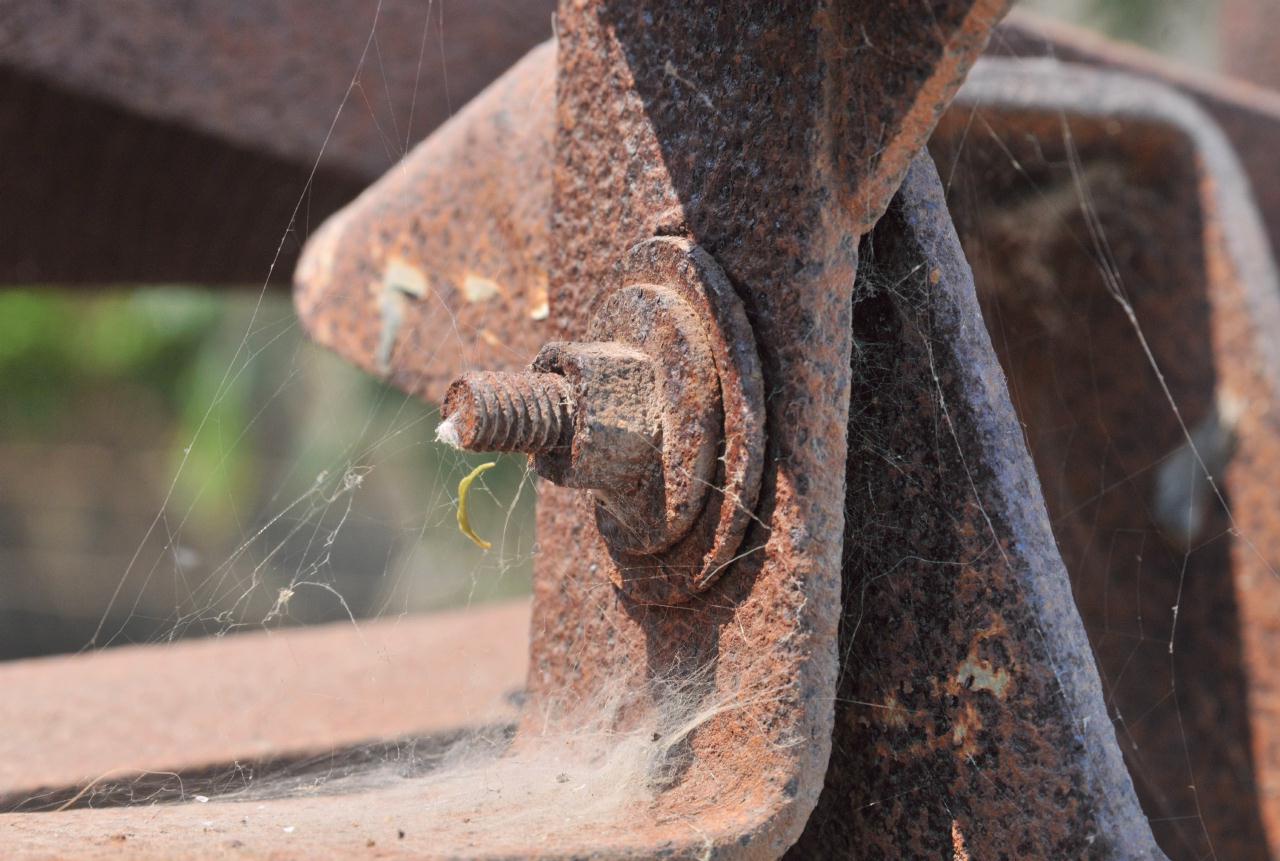 | |
|
Copyright 2008 Bryan Costales The were called Tribbles after the famous Startrek episode that originally showed an infestation of the adorable fuzzy creatures. Mary Silkroad and her boyfriend Tony Tallbottle spent their first college summer tracking down the origin of the Tribbles. "I saw the last Tribble in the San Diego Zoo just before it died." "You've told me that dozens of times. Do you have a new point?" "Well, yeah." Mary stopped and leaned against the old rusty fence. "I remember it's food. I remember it only ate vegetables." "They only fed it vegetables. It ate people. Remember?" "How come we don't have any skeletons to see? How come nothing of them exists? What are they afraid we'd find out?" "You find conspiracies in everything. You know why. To prevent cloning of course. They incinerated them all. You know that. I mean they teach that in grammar school." Mary continued along the fence until she reached a break, then entered the yard. The ground was covered in a low grass. All that remained of building were their outlines in the dirt. Even the old foundations were slowly eroding away. "What's that?" Mary pointed at something glistening in the dirt. The reflection was bright when she first saw it. But it turned out to be hard to find once she started to look. "Look," Mary said. She picked it up and held if for Tony to see. "A tooth." "Why is it green?" Tony asked. "I read somewhere that Tribble teeth were green." "You and myths," Tony told her. "How could they tear the old institute to the ground and forget a tooth?" "Maybe it fell into a crevice. Who knows. It might have only washed out recently because of the rains." "It's probably just some animal. A jackalope or a catyote." "Still I think I'll keep it." Mary dropped the tooth in her trouser pocket. "It will make for a fun cloning project when we get back." "Suit yourself," Tony said. He shaded his eyes and looked at the sun. "It's getting late. We should start back or we'll miss the last train." That evening on the train home, Mary came down with a slight fever. Tribbles didn't eat people. They'd been created as pets. In the old days, they'd been wildly popular as a substitute for cats. That is, before their deadly component was discovered. Dubbed the Tribbleflu, it eventually killed a quarter of the world's population. Unaware, traveling back on the train that evening, a modern day Mary carried in her trouser pocket a disease more deadly than Typhoid. Fence of the Warehouse Cafe • Photo Posted Sunday 17 August 2008 • (6 July 2008) Port Costa, California • © 2008 Bryan Costales 
 #BP20080817.jpg Add a comment or report a mistake
|
|
|
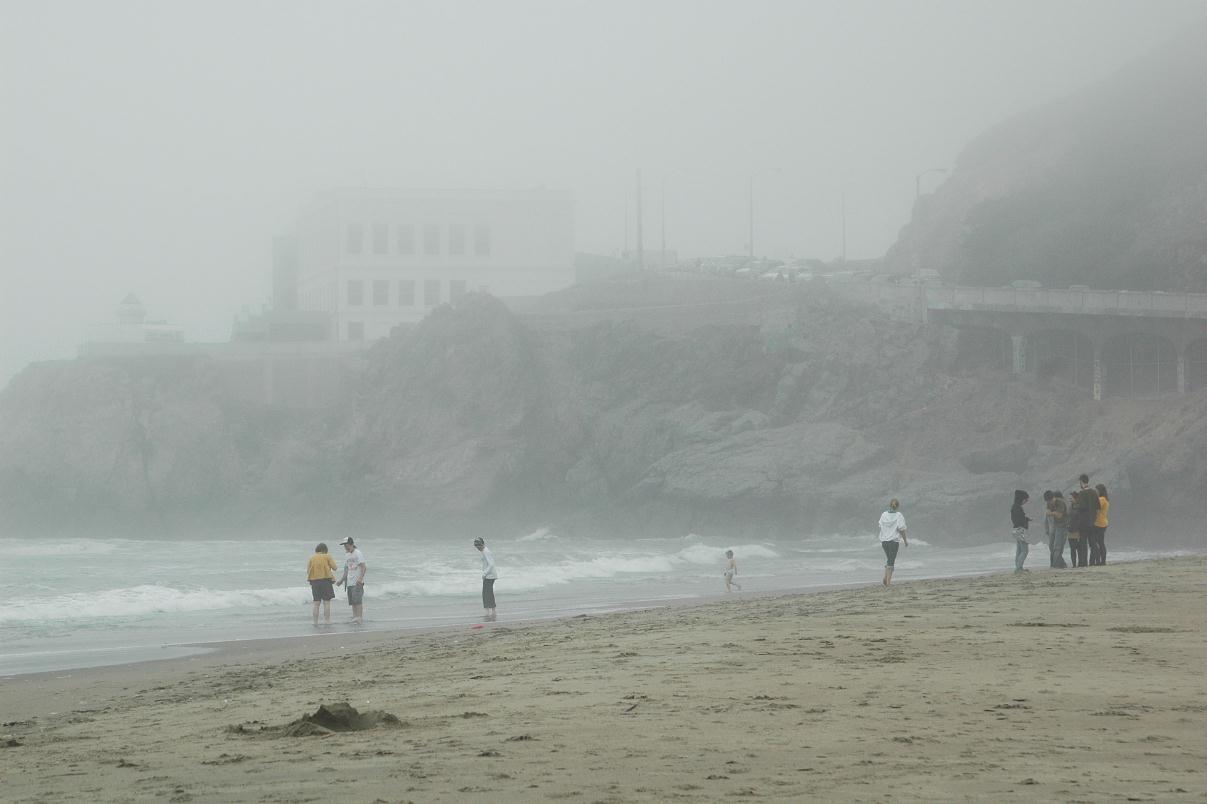 | |
|
Copyright 2008 Bryan Costales May and June Brady were sisters. At thirty, May was the younger by a year and a month. They had just attended a hypnotist show at the Jewish Community Center and now walked in foggy quiet on Ocean Beach. May was the more adventurous of the two. "I can't believe I juggled," she said. "I mean I don't know how to juggle. I've never juggled." June was the college graduate. The one with a job. "It was after he told you to act like a chicken. He tossed you three balls, one at a time, and told you to juggle them. You did. It was really wonderful. You were great." "A chicken?" "Remember the Yelp reviews. They all said he did that." "Yeah but juggle. I mean how silly is that." "The kicker is he called me on stage before he woke you up. He whispered a secret phrase to me that I was to tell you when we were someplace safe." May stopped walking. "What phrase? What does it do?" June stopped too. "It allows you to remember everything that happened to you on stage." May jumped in place and said in her little girl voice, "Tell me. Tell me." June's mouth moved but no words came out. Suddenly May could remember everything. "Wow," she said. "I could juggle." "Power of suggestion," June told her and began to walk again. "What do you mean?" "See the Cliff house there? How its partly hidden in fog?" "Yeah." "Now if I told you it was slowly vanishing, you would conclude the fog is coming in." "Okay?" But if I told you it was slowly being revealed, you would decide the fog was burning off." "Oh I see. You're trying to tell me that hypnosis is just the power of suggestion. But it's not. It's more." "I told you the hypnotist told me a phrase that I was to tell you to get you to remember." "Yeah?" "But he didn't. I made that up. The power of suggestion caused you to remember." May stopped again. She put her hands on her hips and said, "Well then why couldn't I hear you?" "But all I said was...." May saw June's mouth move again, and as before, no sounds came out. She blinked and looked around. Her eyes went wide with surprise. She said, "What are we doing at the beach?" Ocean Beach Neighborhood • Photo Posted Monday 11 August 2008 
 #BP20080811.jpg Add a comment or report a mistake
|
|
|
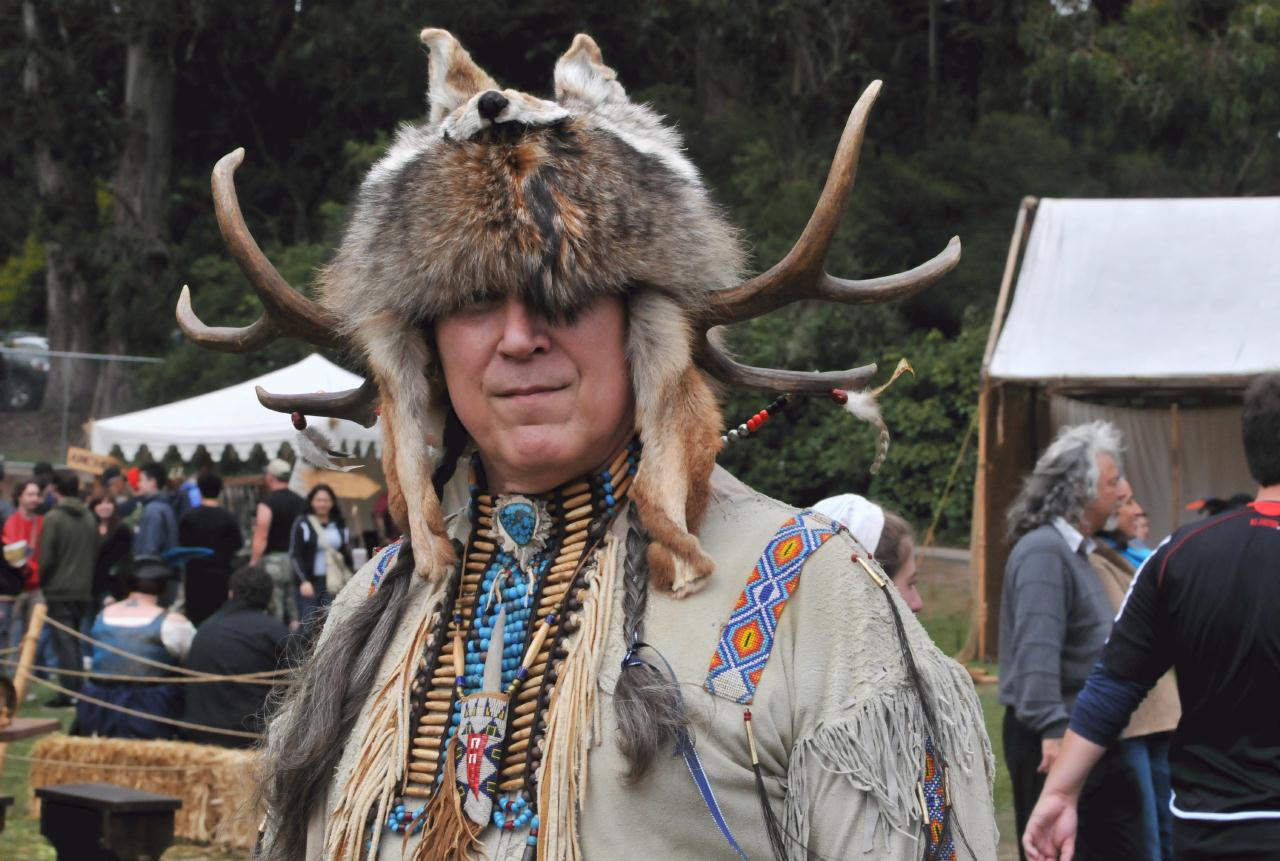 | |
|
Copyright 2008 Bryan Costales Young Carl Heplin wanted to fly jet planes. "You'll make a great writer," is what his father always told him. They'd just finished sharing a paper plate of garlic fries. His Dad said, "Time to hone those writing skills." "I want to be a singer. You know, like in the movies." "Frank Sinatra?" "Whose that?" "Never mind," his Dad told him. "Go listen to people talk." "I want to race motorcycles," Carl said as he left. Carl didn't mind the writing exercises because he didn't actually have to write. This week's lesson was to follow folks and listen to them talk. Carl found an old couple, not a real old couple, just old. He thought they looked like the kind of folks he would see squeezing fruit in the Safeway. As Carl slipped up behind them, he heard the woman speak. "Oh. Look over there dear. An Indian." Carl guessed from the word, "dear," that the couple was married. The man was a little soft spoken so Carl had to get closer. "You mean someone from India?" "No. A native American. You know. A real Indian." The man patted his forehead with a handkerchief. "Not a wooden Indian? We should invite him to lunch." "And over there. Pirates." "Shiver me timbers. Hmm. I wonder why timbers are always cold?" "Want to get some food?" "When does the jousting start?" Later, Carl met his Dad by the archery range like they'd planned. "Hi dad," he said. "Did you have a good listen?" "You know," Carl thought about it for a moment. "I don't think people listen to each other when they talk." "You want an ice cream?" "I want to be a cowboy. You know, like that priest with the ax handle. He was cool." "Clint Eastwood?" "Who's that?" "Want to try your hand at archery?" "What's a wooden Indian?" Renaissance Faire, Golden Gate Park • Photo Posted Thursday 28 August 2008 
 #BP20080828.jpg Add a comment or report a mistake
|
|
|
 | |
|
Copyright 2008 Bryan Costales Dean Planzo chewed tobacco but didn't like the way it made his teeth look. Then he tried a pipe, but that made him look like a professor and he hated college types. He thought about quitting, but that struck him as the hardest option of all. So he went back to smoking cigarettes. "You can't smoke anywhere in the park," the ticket-taker had told him. That didn't seem so bad to Dean. His girlfriend Becky smoked too, and if she could do it, he could do it. "The tram ride looks interesting," Becky had said. So they took it. The tram slowed as it passed a scene from the film, "War of the Worlds." Not the original but the remake. "That car's smoking," Dean said. "How come that car can smoke and we can't?" Becky elbowed him in the ribs. "Stop talking like that. You know I need a smoke too." "We can't smoke until we leave the park. I think that stinks." "Well ain't we getting political now." "I'm just saying..." Becky kissed him. "I know honey. It's our cross to bear." "Shouldn't that be the monkey on our back?" "I think that's just hard drugs." The tram ride finally ended and they piled out with all the other tourists. Becky took his hand. "Shall we head to the parking lot for smoke?" "Did you mean it when you said I was getting political?" "There," Becky said and poked him with a finger. "That's exactly what I mean. That's why you smoke. If it wasn't for the nicotine, you might just do something stupid like get into politics." "Yeah," Dean said. He felt his pocket to make sure his smokes were still there. "I like the way you keep me on the straight and true. Let's go smoke." From the film "War Of The Worlds" • Tram Ride, Universal Studios Park • Photo Posted Saturday 30 August 2008 
 #BP20080830.jpg Add a comment or report a mistake
|
|
|
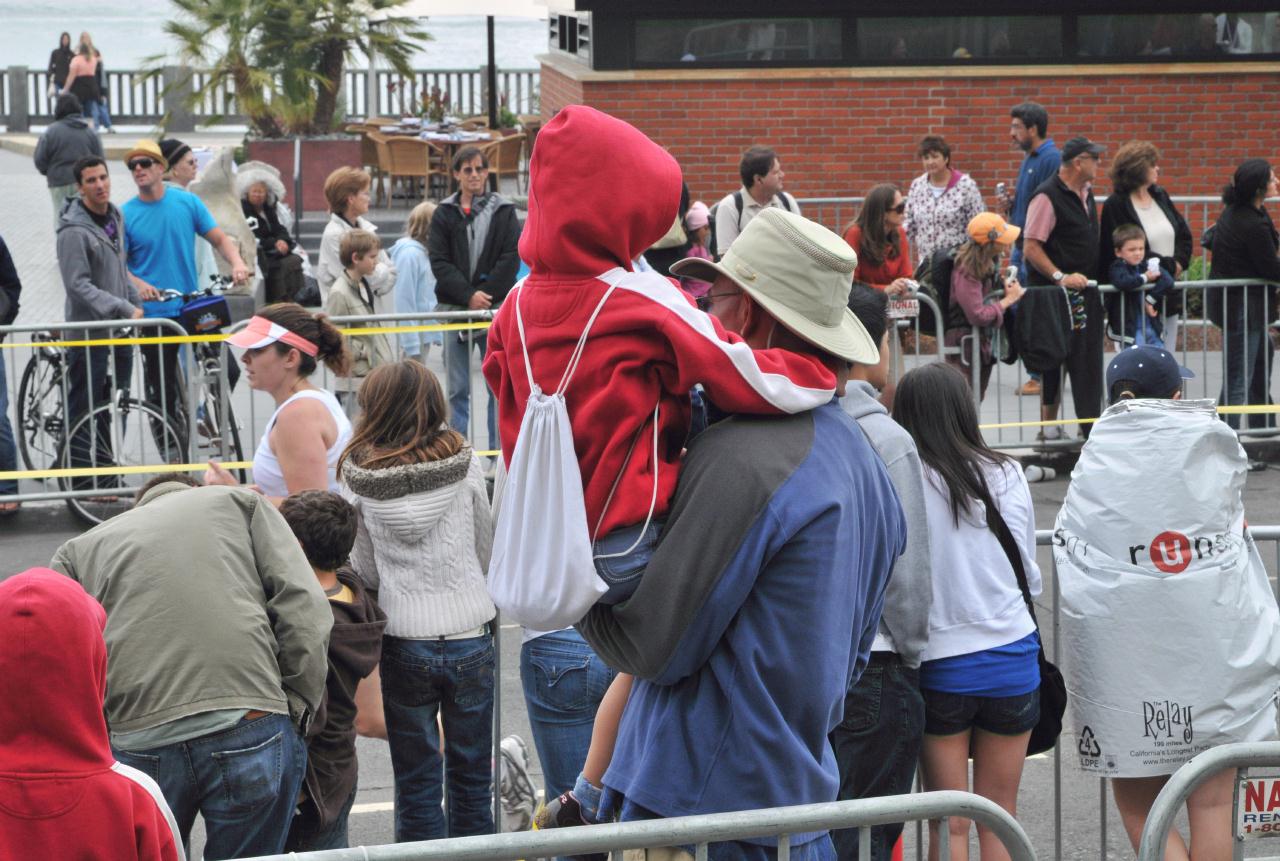 | |
|
Copyright 2008 Bryan Costales Brad Tyler held his son in his arms to watch the finish of the San Francisco Marathon. He glanced up and saw his son admiring his hat. Brad remembered himself as a boy standing next to his own father. The parade in downtown Laramie, Wyoming was always a bit chilly but fun. He remembered looking up at his dad's hat, a bold Stetson with silver trim. As a growing boy his father often told Brad he would someday inherit that hat. But the hat had been pawned and lost, along with the house and everything else. His dad had gone bankrupt while Brad was in college. A failed attempt to throw all their money at keeping Brad's mother alive. At the funeral, Brad remembered, his dad stood there hatless. On the ride home, Brad stopped and bought his dad a fine leather cowboy hat. Brad remembers that as the only time his dad cried. Brad hefted his son and watched as two runners approached the finish. The crowd cheered, but Brad didn't recognize the runners. He glanced up at his son again. His son was watching the runners. Brad's dad had died in a bus crash while leaving Las Vegas. The fine leather cowboy hat was not among his possessions. Brad wanted to visit Las Vegas to see if the hat had been pawned. But his wife had said no. Brad favored Tilley hats, both canvas and nylon. He had no pretense that his son would ever inherit them. "Hat's," he said to himself or perhaps to his son. "Hat's," Brad said. "Are a one owner item." Brad looked up at his son who looked back at him. "Hungry," his son said. "Okay," Brad told him. "Let's head home." San Francisco Marathon • Photo Posted Tuesday 12 August 2008 
 #BP20080812.jpg Add a comment or report a mistake
|
|
|
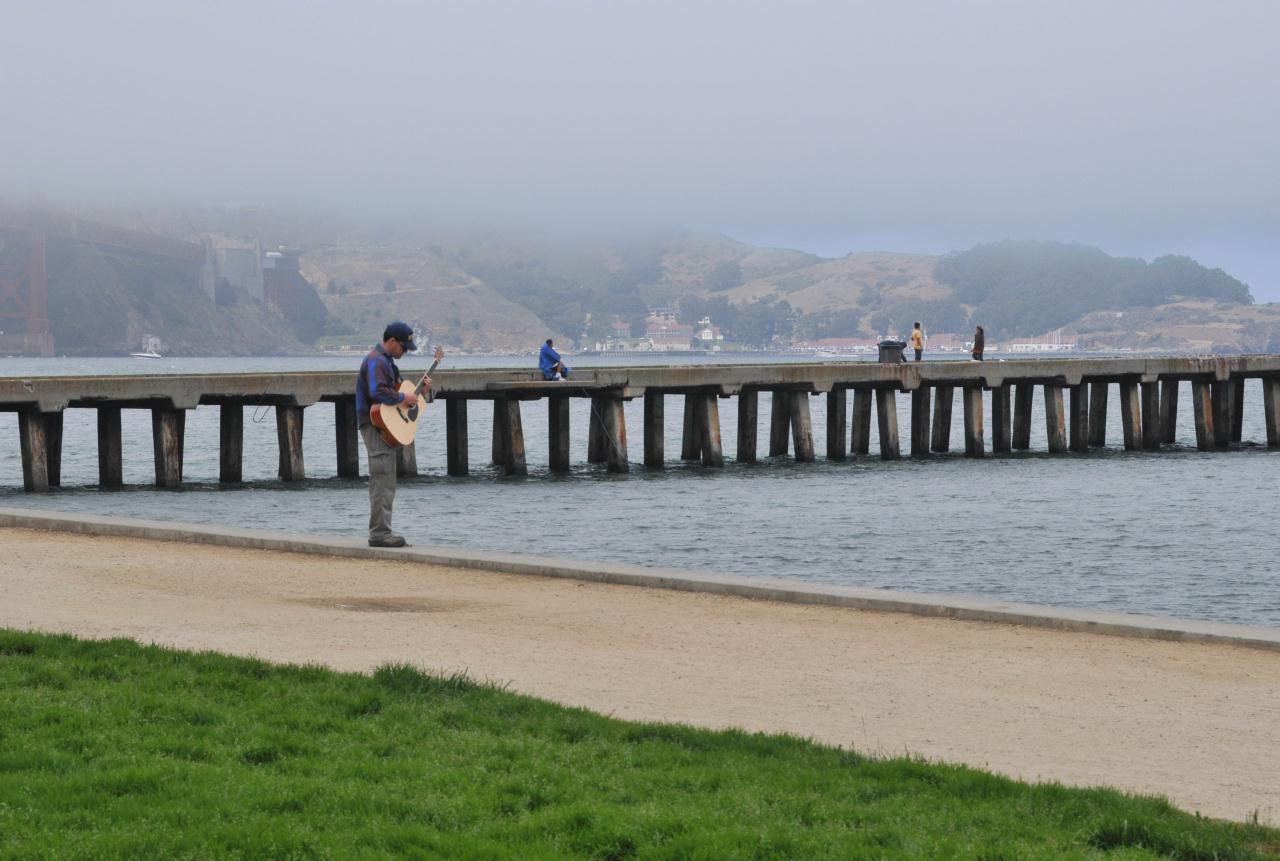 | |
|
Copyright 2008 Bryan Costales Whether it was bad acid cut with something else, or meat cooked not right, the evil just wouldn't let go. Danny McDillan remembered playing his guitar for a group of children on the gardened roof of a Sausalito houseboat. His brief gig ended when Bubbles the Clown arrived. "Here," said the father whose daughter just turned six. "I put something extra in the envelope for you." Whatever it was, it must have been small, because the envelope felt slim to Danny. He said, "Thanks," packed his guitar and began the long walk back to the ferry. This next morning, and still not home yet, Danny stood on the sea wall at Crissy Field and strummed his guitar. Instead of lilting tones the guitar howled and wailed. The strings seemed alive. Touching them was like touching exposed muscle, causing the guitar unaccountable pain. Danny remembered yesterday. He'd stopped at a small diner. He'd eaten a hamburger and a fruit salad. Now, he tried to picture the meat, but remembered ordering it well done. Danny set the guitar on the cold concrete and stared at it. What had happened? Where was his guitar case? How did he get to San Francisco? Danny remembered paying for lunch with the money from the envelope. There had been a single hundred dollar bill in it. A hundred for forty minutes guitar playing. Good money. There had been something sticky on the bill. Danny remembered scraping it off with his finger nail before handing the bill over. Danny looked at the guitar by his feet. He rifled his pockets. No money. No envelope. Danny heard a strange sound. It reminded Danny of the flex of a high diving board. He looked around but there was nothing to be seen. He was alone on the breakwater. A few other early risers strolled or fished from the nearby pier. Danny picked up his guitar. It seemed lighter. He cradled it and began to play. It played sweet music again. Danny paused and said, "Never Sausalito again. Not for tips like that." Danny resumed playing. He played and sang an old ballad. Then he strummed and picked a lively dance. A few people gathered to listen. A child asked, "Where's your case? Where do I put the money?" Danny ignored the kid. He played now, merely for the love of playing. He played because the evil had fled and his guitar was his own again. And despite feeling tired, he was happy. Crissy Field • Photo Posted Saturday 16 August 2008 
 #BP20080816.jpg Add a comment or report a mistake
|
|
|
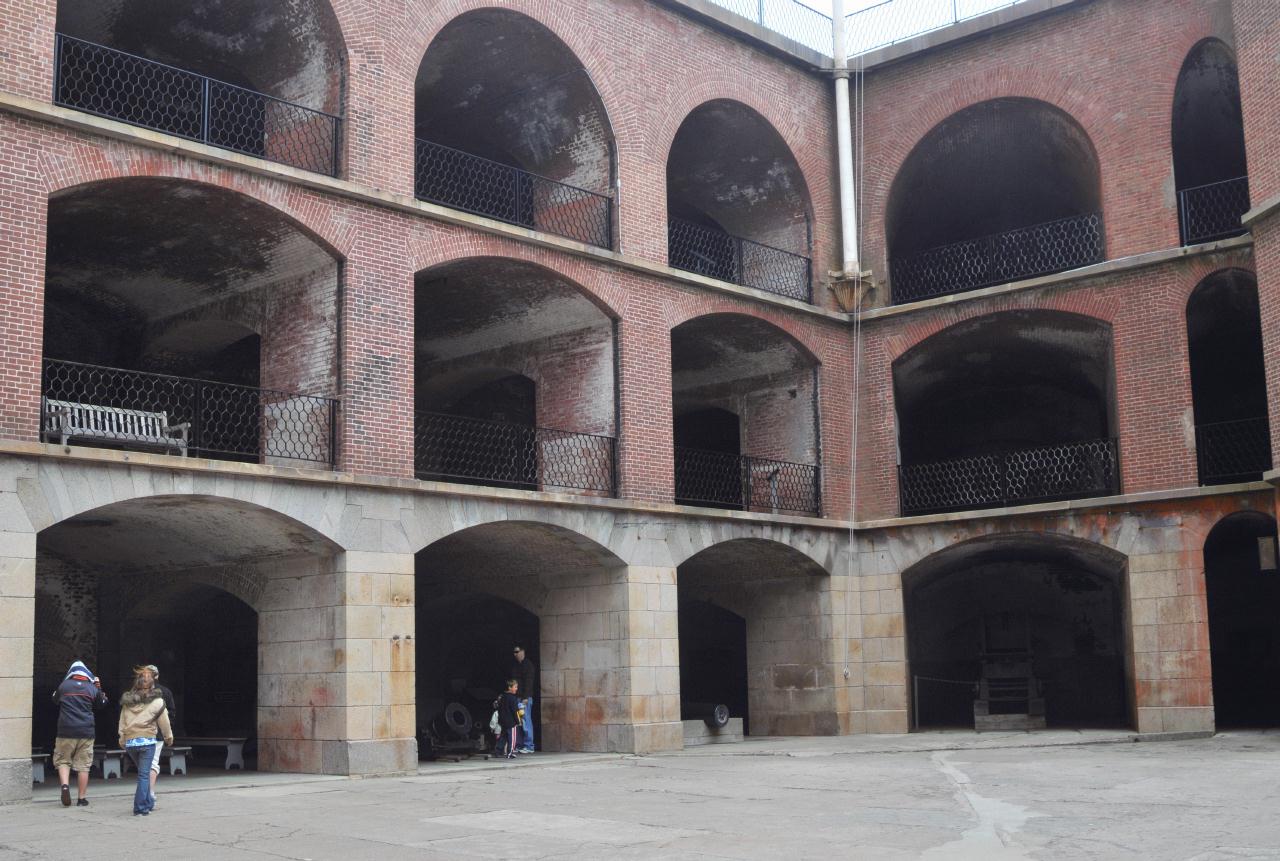 | |
|
Copyright 2008 Bryan Costales Rex Noilon had been uncomfortably married to his first wife for thirty years. That was until she wrongly asserted her right of way over a dump truck. His second wife, Flame, was perfect. "Look at all those levels," Rex said as they entered the central courtyard of Fort Point. "I never would have thought there'd be so many levels seeing it from the outside." "Reminds me of a game I used to play as a kid," Flame said. One of the things Rex liked about Flame was the way one thing would remind her of another thing. She kept his old mind fresh. Flame waved her arm causing her dozens of bracelets to jangle. "Chutes and Ladders. That was it. Played with dice." "I remember that. A silly game as I recall. If you landed on the base of a ladder, you skipped ahead. But if you landed on a chute you'd slide down and lose progress." "The ladder was kind of like a short cut. Like cutting through an alley instead of walking all the way to the next street." Flame adjusted her broad-brimmed silk hat. "But what's the chute? What's the opposite of a short cut? A long cut?" Rex liked word games. He made it a point to listen to the NPR puzzler every Saturday morning. "The opposite of a short cut? Why a bad marriage of course." Flame slapped him on the arm. "You silly. I don't want to hear any more about that first wife of yours. You're with me now." Rex put his arm around Flame's shoulder. "I wish I'd met you sixty years ago." "You would have been eight and I would have been two. How would that have worked out?" Rex was weak at math and woeful at arithmetic. He looked around. "I don't see an elevator. I can't handle all those stairs." "Let's ask a ranger." "No." Rex gave her a squeeze. "It's you and I against the world now. We don't need any stinking help. We'll solve problems as they come up. Together. As a team." "So what's the plan?" "Let's look at everything on the first level then leave." "I like the way you think." "I like dump trucks." Flame slapped his arm again. "Now stop all this talk about your first wife. Let's go look at the cannons." "I like cannons. They remind me of something but I can't remember what." "I know," Flame said. "They remind me of toothpaste." Rex sensed this was going to be a fine day. A fine day indeed. "Why toothpaste?" he asked. Fort Point, National Historic Site • Photo Posted Friday 15 August 2008 • (9 August 2008) San Francisco, California • © 2008 Bryan Costales 
 #BP20080815.jpg Add a comment or report a mistake
|
|
|
 | |
|
Copyright 2008 Bryan Costales Bess Tisly-Miller couldn't remember when she first found her husband tiresome. She never did fret not remembering, after all life had to go on. That is until a woman at work, someone from Legal, invited her to a Sunday afternoon party. Her husband Roger was in Texas on business, so Bess decided to attend the party alone. She arrived socially late and entered to discover she recognized no one. She held her second vodka martini and stood by the Buffet table. She was trying to remember exactly when her husband had first changed when a voice spoke. "When was the last time he made you laugh?" Bess looked around but nobody was near. "Down here," the voice said. Bess looked down. A slice of bologna was rolled and now spoke like a mouth. "Well? When was the last time?" Bess remembered the Aloha festival last summer. Roger had pointed at a fake dog on a shelf. "Why does that dog have a handle?" he asked. Bess glanced at the dog. "To hold its pants up?" "No. That's a fireman. Do you suppose it helps old people lift tiny dogs?" Bess, as she recalled, was looking at hats. She remembered she'd laughed one hollow laugh. "Not then," a different voice spoke from the Buffet table. Bess looked down again. This time it was a roll of American processed cheese. "It was later," the cheese told her. "Much later." Bess felt a hand on her shoulder. She looked and it was the woman from Legal. "Talking to the cold cuts?" "No. Not me. I was just thinking out loud." "What about?" "I was trying to remember exactly when my husband changed." The woman raised an eyebrow. "Maybe it was you who changed." Bess felt offended. Just who was this woman anyway? "I thought you were with Legal." "Me?" The woman laughed. "No. I'm a psychiatrist. My husband is the one who works for your company." "I don't believe in psychiatrists," Bess said and immediately regretted having said it. "That may be so, but I wasn't the one talking to cold cuts. Here," she handed Bess a business card. "My card. Call me sometime. You know. Just to talk, that's all." The woman patted Bess on the shoulder and left. "I'm not crazy," Bess said aloud. She glanced at the table. None of the food talked back. "Nobody. That is on my side of the family, has ever seen a psychiatrist." She glanced at the table again, daring it to speak. Out of the corner of her eye she thought she saw an olive wink at her. But when she looked directly at it, it was just an olive again. Bess held her glass in her right hand and there, standing alone at the Buffet table, sipped her martini. Unbeknown to Bess, her left hand secretly slipped the woman's business card into her left jacket pocket. Her left hand patted her pocket then fell to hang loosely by her side again. "I'm not crazy," she muttered and sipped. Her eyes darted back and forth over the table. "I'm not crazy." Aloha Festival, Presidio Grounds • Photo Posted Wednesday 27 August 2008 • (10 August 2008) San Francisco, California • © 2008 Bryan Costales 
 #BP20080827.jpg Add a comment or report a mistake
|
|
|
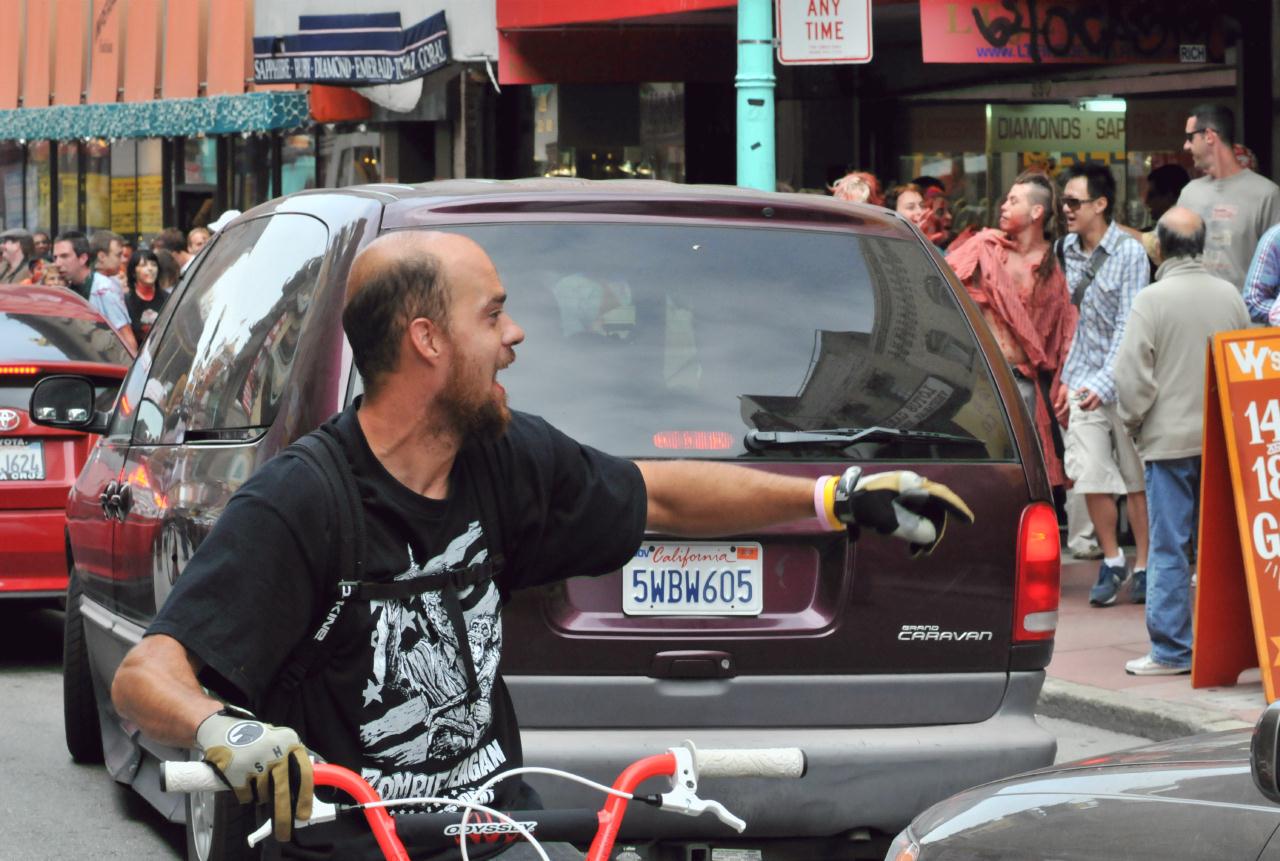 | |
|
Copyright 2008 Bryan Costales Fenton Phillips liked to ride his bike, point at people, and laugh. He never laughed to be mean. He laughed because people were funny. Just this morning, Fenton laughed at a man dressed in a black business suit with a white shirt and red tie. He laughed because he imagined a clown at his day job, his red nose melted down onto his chest. That seemed funny so he pointed at the man and laughed. Fenton passed a group of Chinese women waiting for a pedestrian light to change. They held dozens of umbrellas and parasols overhead for protection from the sun. The sight reminded him of an old Disney film and mushrooms that flew. That seemed funny so he pointed at them and laughed. Fenton passed a large number of people dressed like zombies. They were splattered with fake blood and shuffled in a realistic manner. The blood reminded him of being cut while shaving. He imagined a large bathroom, like in a gym, with all those people shaving and cutting themselves and turning into zombies. That seemed funny so he pointed at them and laughed. The group of zombies enjoyed the sight of Fenton pointing at them and laughing so dozens of them pointed at Fenton and laughed at him. Fenton stopped his bicycle, got off it and rolled it to the opposite sidewalk. Something, Fenton felt, had gone wrong. "That's not right," he muttered. "I'm supposed to laugh at them, they're not supposed to laugh at me." Everything, he felt, must proceed in one direction, always the right direction, always from A to B, never from B to A. Someone tapped Fenton on the shoulder. Fenton looked and discovered a woman in a clown suit. Her face was white with oversized lips, and she wore a rainbow wig. Her round red nose seemed too big for her face. "What happened?" she asked Fenton. "I was so happy and now, all of a sudden, I'm sad." Fenton watched a single tear erode a rivulet through her white makeup. For some reason that tear reminded him of his only visit to the Grand Canyon. He remembered being very young, holding his father's hand and looking down. Someone poked Fenton in his side. Fenton looked and found a young Chinese boy staring up at him. "My dad was telling a joke," the boy said. "He always tells jokes and my mom always laughs. But this time my mom started to cry. I asked her why she was sad and she pointed out the window at you. Why did she point at you mister?" Fenton remembered his father eating an omelet made of egg whites, stirring it with his fork, wondering where the meat had gone. Fenton remembered his sister, digging worms in the yard. "To go fishing with dad," she had said. But Fenton had told her, "Don't you remember? Dad's dead." Fenton looked up and down the busy street. As far as he could see in both directions people stood still. They all watched him. They all watched him and waited. All of them. "A to B," Fenton said. "A to B." He reached out for the clown's nose. He hesitated. "May I?" he asked. The clown woman nodded. Fenton squeezed the clown nose once. Just once. A squeeze and a beep. One squeeze, and after that one beep. "A to B," he said. And then he laughed. It popped from his mouth like a hiccup. A tiny laugh. He looked at the clown. He looked at the rivers cut in her white makeup by her weeping. He pointed at them and laughed. He laughed because they were funny. "Thanks," said the boy. Fenton pointed at the boy and laughed. The sounds of the City filled Fenton's ears. The world woke up again. The world began to spin on its axis again. The sadness in Fenton's soul was pushed back again. His laughter drove it deep inside, far into his core, buried and forgotten. Fenton mounted his bike and rode again. He rode and pointed and laughed. And because he laughed, the world laughed too. The 2008 San Francisco Zombie Mob • Photo Posted Monday 25 August 2008 
 #BP20080825.jpg Add a comment or report a mistake
|
|
 |
| home • contact • topic guide • top 25 • photos • video • writing • blogs • upload • terms • privacy |